MEM INSIDER
A magazine written by the School of Management, Economics, and Mathematics students


June 2024 Volume 9
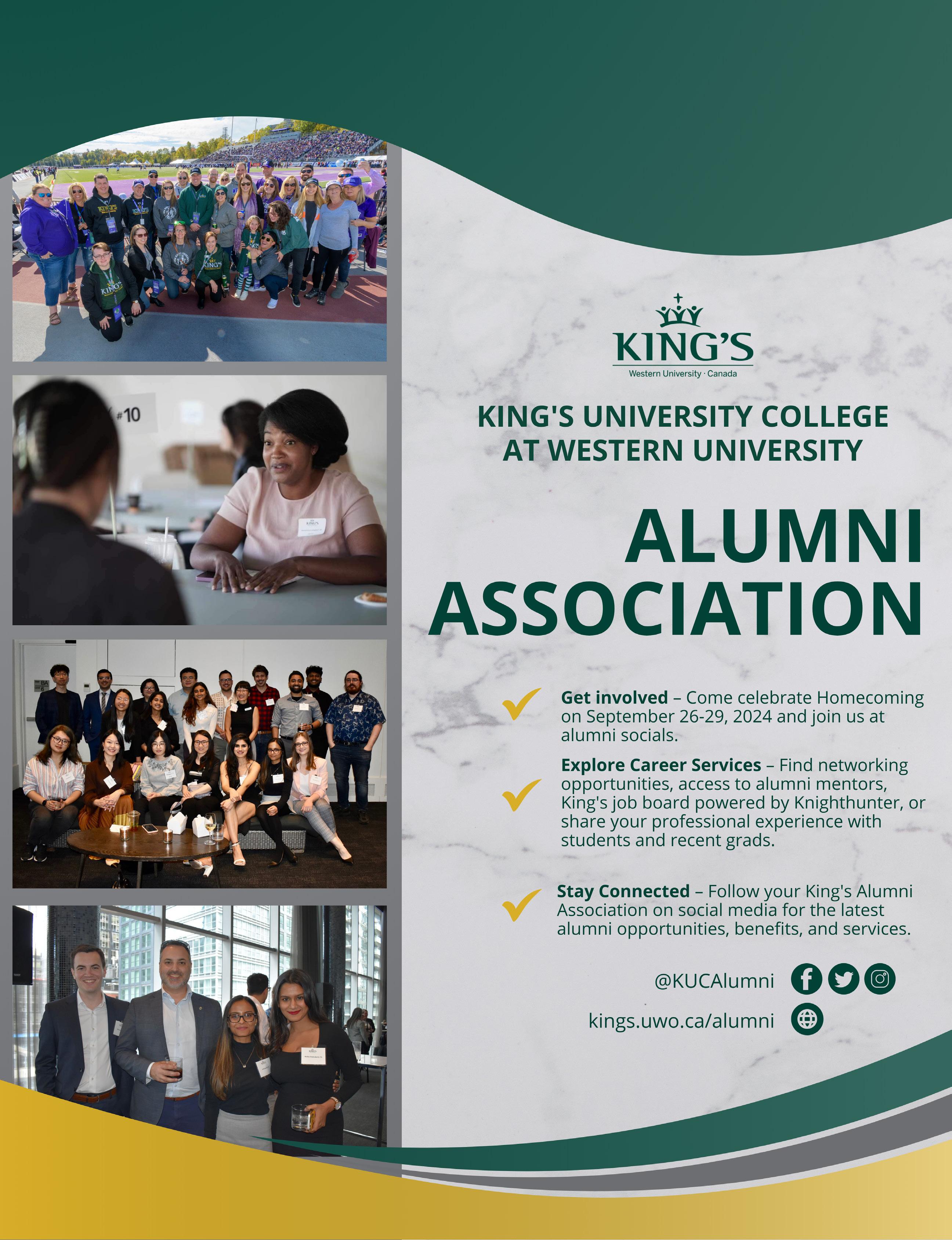

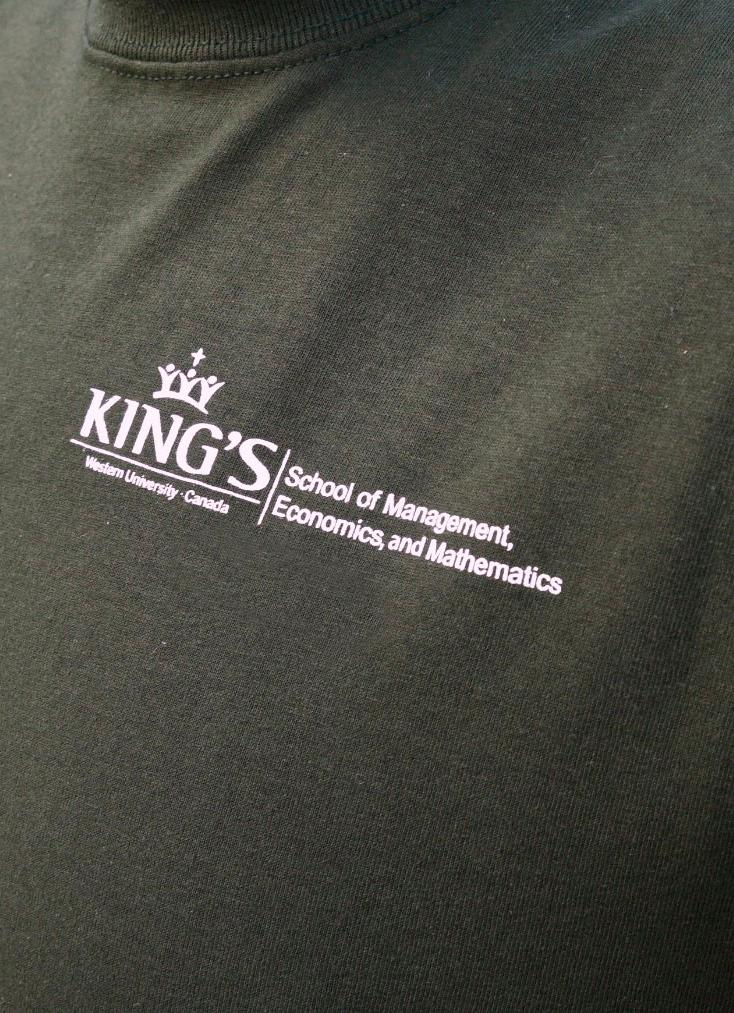
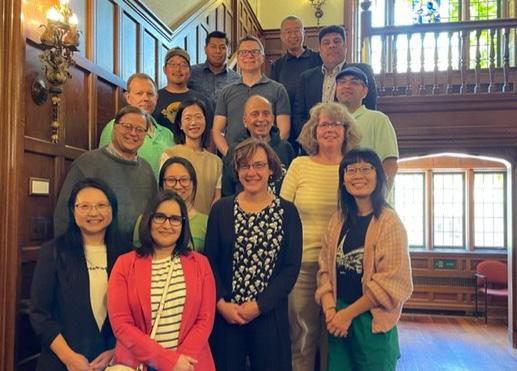
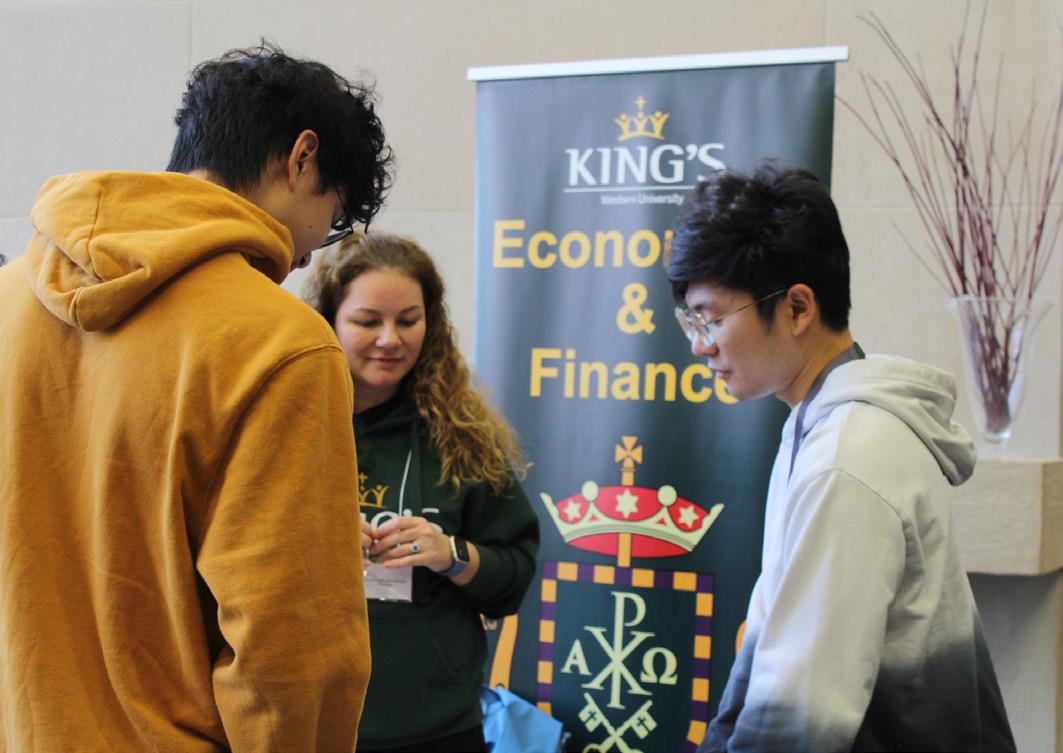
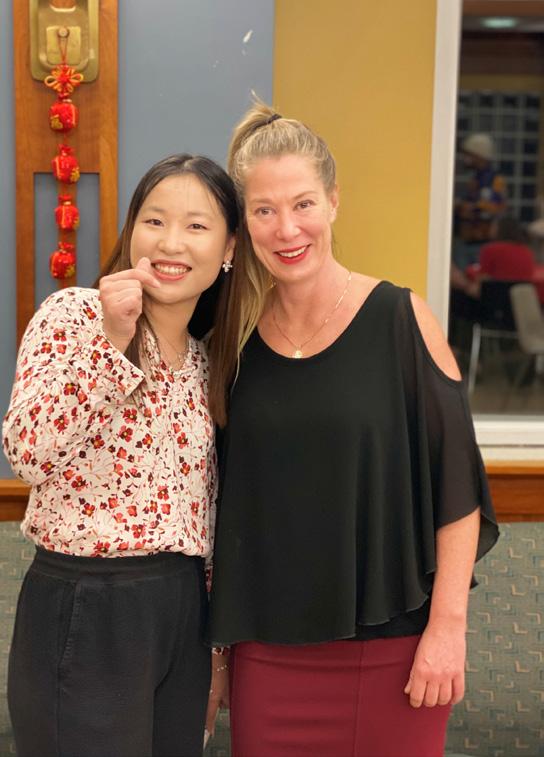
Director's Report
Jen Jeffrey
Management Report
Jeannette Eberhard
Economics Report
Hui Feng
Math and ADS Report
Joseph Turnbull
Student Engagement and Community Building
From Fanshawe to King's: A Transformative Experience
James Birch
Entrepreneurial Thinking: An Innovation in Business Course
Aiqingquin Li
Faculty Profile: Dr. Natalia Bezmaternykh
Boya Yang
Interdisciplinary Teaching of Professionalism and Ethics
Shuai "Paul" Chen
Innovations in Research with Vunerable Populations
Dr. Jingjing Xu
Bridging Cultures and Business Perspectives: My CCC Program Experience in Japan
Junbo Huang
My Internship Experience
Jessica Minh Nguyen
Exploring the Graduate Path: Insight from a BMOS Finance and Management Student
Boya Yang
"Multilingual Students": What to Call NonNative English Speaking
Chuting Zhang
3 • MEM INSIDER • June 2024
OF CONTENTS
TABLE
Manik Singh's Table Tennis Tale John Milner A Migratory Bird on Her Way Nora Wu The Nightmare at School Neslihan Cetin From the Desk
Academic Counselling Simone Shepheard
of
Students in Canada
School of MEM Announcements Remembering Omar Barzak Ahmed Al Fares 33 34 36 38 32 31 18 4 7 9 11 13 15 16 23 24 27 28 29 19
SCHOOL DIRECTOR REPORT
 Jennifer Jeffrey, PhD
Associate Professor and Director of the School of MEM
Jennifer Jeffrey, PhD
Associate Professor and Director of the School of MEM
Greetings to all,
Our School of Management, Economics, and Mathematics (MEM) is home to almost 1,000 students, studying from amongst six different degree pathways in various areas of management, economics, finance, and analytics. The School of MEM is international, with students and faculty joining us from India and Pakistan, and countries in Asia, the Caribbean, the Middle East, and South America, making it the largest and most diverse at King’s. And as we wrap up another school year, I reflect with pride on the many accomplishments that our students and faculty have achieved this busy year.
On the academic front, our various program areas continue to innovate, with faculty members introducing new courses in subjects as diverse as sustainable finance, Islamic finance, data visualization, and private equity, just to name a
few! The Economics program has expanded its honours level offerings in the face of increasing demand for graduate-school pathways, and I have no doubt that the new honours specialization in financial economics will be a popular choice. You can read more about some of our alumni bound for graduate school later in this edition; I’m delighted for their successes and appreciative of the mentoring many colleagues have provided these students along the way.
On the research front, faculty members within the School of MEM continue to innovate, with many turning their attention towards topics of societal importance. For example, Drs. Felipe Rodrigues, Renfang Tian, and Jingjing Xu were awarded a prestigious Social Sciences and Humanities Research Council (SSHRC) grant to explore the financial consequences of autism on Canadian families. Dr. Lori Murray was named lead statistician in a major multi-centre


Student engagement is one of the things that makes King’s, and the School of MEM, really feel like a community.
research project aimed at predicting workload in emergency rooms. Five of Dr. Amanjot Singh’s research papers were included in the World Health Organization’s research database of impactful studies conducted on the subject of the COVID-19 pandemic. These are but a few of the many examples of faculty members within the School of MEM using their research expertise to drive meaningful change.
And finally, on the student community front, 2023-24 has been an incredibly busy year! The School of MEM is home to many student clubs, including the BMOS Club, King’s Econo-Math Society (KEMS), King’s Capital Markets Club, and the Entrepreneurship Club. Run entirely by student leaders, these clubs have had a host of guest speakers, networking events, career skills development, and other activities aimed at enriching campus life. To everyone who has participated in–and even led–these initiatives, thank you! Student engagement is one of the things that makes King’s, and the School of MEM, really feel like a community.
I wanted to give a special shout-out to those graduating this year. Many of you began your university journey during the pandemic, and persevered through an incredibly uncertain and challenging time. Your grit and determination
have led you to this incredible milestone… the graduating class of 2024! I hope to see many of you at convocation ceremonies, and wish you all the best as you embark on the next chapter. Whatever it is, you’re certainly ready for it!
Sincerely,
Jen Jeffrey, MBA, PhD Director, School of Management, Economics, and Mathematics

5 • MEM INSIDER • June 2024
4 • MEM INSIDER • June 2024








School of Management, Economics, and Mathematics
Providing a positive and rewarding learning environment.

MANAGEMENT REPORT
Jeannette Eberhard, PhD Associate Director, BMOS Program
There is an expression that “it takes a village to raise a child.” I can attest to the fact that it takes a team of instructors, teaching assistants, academic advisors, student volunteers, alumni, and administrative personnel to support the journey of a King’s BMOS graduate. Thanks to all on the BMOS team for your dedication to our students and your support of each other inside and outside of the classroom.
As the Associate Director for BMOS, I’ve come to realize how much of a successful four-year student journey occurs outside the classroom – through individual program counselling, career development events, and student club involvement.
As a faculty member, I’m inspired by the efforts of my colleagues to incorporate simulations, case studies, and real-world events to bring theoretical concepts to life inside the classroom. Their efforts elevate student engagement and teach students how to apply textbook concepts to decision making and people management –skills they will need in their future careers. Here are just a few examples of what you might see by dropping into a BMOS class here at King’s…


In the Accounting program: Alexandra Vance brings CPA-style cases into the course, preparing senior students for the type of questions they will encounter when they write their exams. Stacey Hann recreates a typical audit situation by requiring student teams to plan an audit of a real public company. Students in Lisa Macklem’s business law class discuss the responsibility for insurance on freight in transit using the highprofile case of Brinks and the shipment stolen while in transit through Pearson Airport.
In the Finance program: Students in Grigori Erenburg’s class use real data from the financial derivatives markets to complete assignments. Similarly, and since corporate finance revolves around determining firms' fundamental values, Amanjot Singh pulls Yahoo Finance pages (i.e., live trading of stocks) in the class to help students understand how theoretical ideas resonate with the real-world investors' trading and expectations. Josephine Gemson taps expert speakers – many of whom are King’s alumni – to share their experience with students. Recent guests included investment managers from TD Canada Trust and BMO Nesbitt Burns, a technology manager from WorldQuant LLC, and managers in the field of professional ethics from the Better Business Bureau and KPMG.
In the Human Resources program: Hina Kalyal worked closely with our alumni relations department to match fourth-year HR student teams with King’s alumni in the HR field. The student teams worked with their alumni contacts to understand and provide recommendations to solve a real HR management problem.
Of course, the efforts of our BMOS team only work when students come to campus ready to learn – and to have a bit of fun! My final thanks go to our students, and especially the ones who are graduating this year, for your positive attitudes and commitment to learning. Well done and best wishes for wherever your career takes you. We look forward to you coming back to share your experience with future King’s students.

ECONOMICS REPORT
Hui Feng, PhD Associate Director, Economics Program

I am pleased to present the annual report from the Economics program of the School of Management, Economics, and Mathematics (MEM) at King's University College, for the academic year 2023-2024. As we maintain our efforts in program development and research activity for the continuity of last year’s successes, we focused this year on student engagement and achievement.
Program Development Highlights
1. The honours specialization (HSP) in Financial Economics was approved in May 2024 by the Western Senate. This is the second honours program in our Economics stream, and we are excited to welcome enthusiastic students to this new HSP program in the fall 2024.
2. We have added 10 new courses to King’s academic calendar. Here is the exciting list:
• Economics of Sex and Gender (ECO 2142A/B)
• Economics of Health Care (ECO 2169F/G)
• Environmental Economics (ECO 2170A/B)
• Introduction to Islamic Finance (ECO 2180A/B)
• Economics of Sports (ECO 2182A/B)
• Economics of Wars (ECO 2183F/G)
• Behavioural Economics (ECO 3351F/G)
• Global Environmental Issues (ECO 3375A/B)
• Advanced Econometrics (ECO 3378A/B)
• Research Seminar in Economics and Finance (ECO 3398F/G)
Many of these courses will be offered during the 2024-25 school year and King’s students will have more options to select their favorite courses! Big thanks go to all the leaders in these course developments: Dr. Natalia Bezmaternykh, Professor Sunghoon Cho, Dr. Jafar El Armali, Professor Kristin Denniston, Dr. Hui Feng, Dr. Adian McFarlane, Professor Trevor Mederios, Dr. Renfang Tian, and Dr. Jingjing Xu!
9 • MEM INSIDER • June 2024
1. This school year, we focused on students’ classroom participation. We have seen big improvements in classroom attendance and discussion, and are encouraging our faculty members to try more active ways to enhance students’ engagement in the classroom.
2. Exam review tutorials for the introductory and intermediate economics theory courses have been generously funded by the School of MEM. These tutorials have received positive feedback from our students. We have also received valuable suggestions from both the course instructors and students, and are confident that more and more students will benefit from this wonderful service.
3. This school year, students research/project contests were held in both semesters. Seven groups of Economics students won Research Excellence awards. The projects are related to their term project/research in ECO 2222, ECO 2223 and ECO 3313 courses. Congratulations to our winning teams!
4. We are helping our students on their career path after graduation. In October 2023, Dr. Tian ran workshops on applying for graduate school in Economics. In March 2024, we held a celebration for all our students who were admitted to graduate programs around the world. This event was well received by our students and faculty members. More than 60 students attended, and our students’ successful experience has been generously shared with MEM’s future graduate school enthusiasts! Well done!
5. In October 2023, we invited Dr. Shudan Liu, a seasoned Senior Rish Manager who is a team leader in Global Rish Management-Treasurer Risk and Liquidity Rish model validation, to conduct a workshop on financial job interviews at King’s (featured on the cover page).
6. Marcus Calloo, who graduated with an HSP in Economics in 2017, returned to campus to give his advice on career planning to our third- and fourth-year students in Economics.
Other Highlights
1. Dr. Jason Dean renewed his tenure probationary contract with King’s University College, and we have high hopes that he will be promoted to tenure and associate professor in two years.
2. Professor Trevor Medeiros received a King’s Award of Excellence in Teaching Excellence in 2024. This was his second nomination for this prestigious award. Congratulations, Trevor! Thank you for your dedication to King’s students, especially students from the School of MEM.

Congratulations, Professor Trevor Medeiros, for receiving an award of Excellence in King's Teaching Excellence in 2024!
In conclusion, the academic year 2023-2024 was marked by significant achievements and milestones in the Economics programs at the School of MEM. Our continuing commitment to program development, research excellence, and student engagement has resulted in notable advancements and positive outcomes. We extend our sincere gratitude to all faculty members, staff, students, and stakeholders who have contributed to the success of our Economics programs. Together, we will continue to build on our achievements and uphold our commitment to excellence in education and scholarship.



MATH AND ADS REPORT
Joseph Turnbull, PhD
Associate Director of Math and Analytics and Decision Science (ADS)
In the 2023-2024 academic year, the arm of the School of MEM that oversees course offerings in Actuarial Science, Analytics, Calculus, Mathematics, and Statistics brought the following changes:
• Dr. Renfang Tian and Dr. Tyler Pattenden introduced Analytics and Decision Sciences (ADS) 2288F, a programming course that inducted an inaugural cohort of almost 50 students into applications of Python and R to solve business problems.
• Dr. Lori Murray led a revamped version of ADS 3864B, where students used data visualization, machine learning, regression and other statistical techniques to investigate problems in public health, business, sports analytics and more.
• Actuarial Science 2053 is being retired this year, as Dr. Xing Jiang has developed Actuarial Science 2052A/B (Applied Financial Mathematics) as its replacement, effective in fall 2024. This new lab-based course contains spreadsheet modeling with applications in finance.
• Statistics 2035 was taught for the final time at King’s this year, as Dr. Lori Murray is introducing its replacement course, ADS 2036B, a course in Predictive Analytics with applications in business, marketing and accounting.
• Two of our largest first-year Mathematics courses experimented with an assessment strategy called “mastery learning,” which rewards motivated students with opportunities to learn from their errors through a continuous cycle of assessment and feedback. This involved the combined efforts of Dr. Tyler Pattenden, Dr. Heekyoung Bae, Dr. Ram Valluri, Dr. Joseph Turnbull, and several undergraduate teaching assistants.
• While still part of our overall assessment mix, multiple choice testing continues to be deemphasized across several quantitative courses at King’s, with a greater proportion of
• Students in ADS 4293F with Dr. Felipe Rodrigues wrote case studies as their final projects, with several bringing their learning beyond the classroom. Rijul Jain (’24 honours specialization in Accounting with a minor in ADS) has already published her case exercise with Ivey Publishing, and several other students are preparing projects for publication.
11 • MEM INSIDER • June 2024
Highlights
Student Engagement and Achievement
10 • MEM INSIDER • June 2024
• assessments requiring full solutions, reasoning and evidence of sound problemsolving. This aligns with our implementation of labs and tutorials across most ADS courses and several non-ADS courses.
• Experiential learning has been incorporated into every ADS course, and we are gearing up for several ADS courses to involve consulting and research partnerships with external organizations next year.
• We are in discussions with several international universities interested in 2+2 partnerships with ADS.
We are also in the final phases for the approval of the major in Analytics and Decision Sciences, as well as the new minor in Arts and Analytics. These programs are made possible through close collaboration of the three units within the School of Management, Economics, and Mathematics, as well as by working with many wonderful colleagues in King’s Departments of English, Psychology, History, and Philosophy.
Faculty Announcements
A member of the ADS faculty group has been promoted to Associate Professor with tenure. Dr. Felipe Rodrigues will begin his new rank on July 1, 2024. In addition to his extensive MOS and ADS teaching in the School of MEM, plus
research work in collaboration with several colleagues in and beyond MEM, Dr. Rodrigues is part of a group recently awarded a Social Sciences and Humanities Research Council (SSHRC) Insight Development Grant to improve healthcare access for children in Ontario with autism, and is also a member of the team that this year developed a capacity planning and forecasting tool used at London Health Sciences Centre (LHSC) to manage patient flows. Congratulations, Felipe!
The School of MEM also welcomes Dr. Luisa Liboni as an Assistant Professor of Mathematics (tenure track), effective July 1, 2024. Dr. Liboni will be joining us from a postdoctoral scholar position in the Department of Mathematics at Western, where she has been advancing the fields of computational neuroscience and artificial intelligence (AI) with collaborators at Western’s Brain and Mind Institute, and is pursuing additional research in data science, optimization and decision-making with AI.
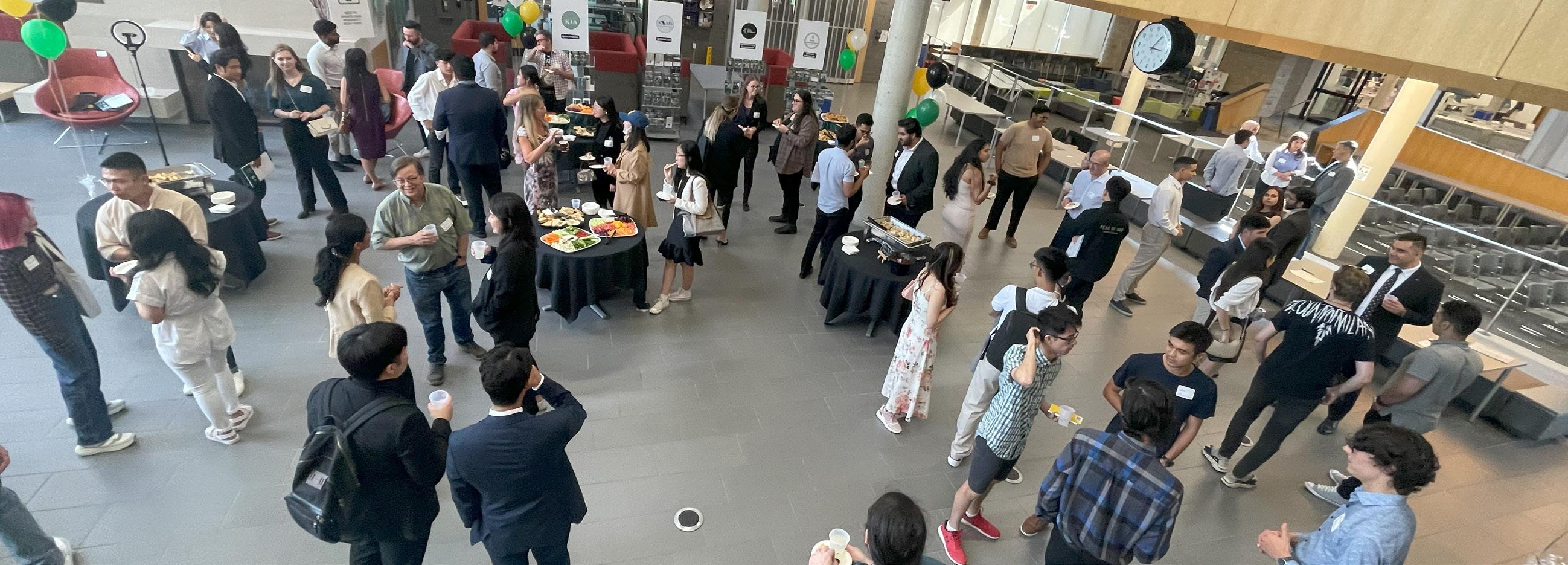
STUDENT ENGAGEMENT AND COMMUNITY BUILDING
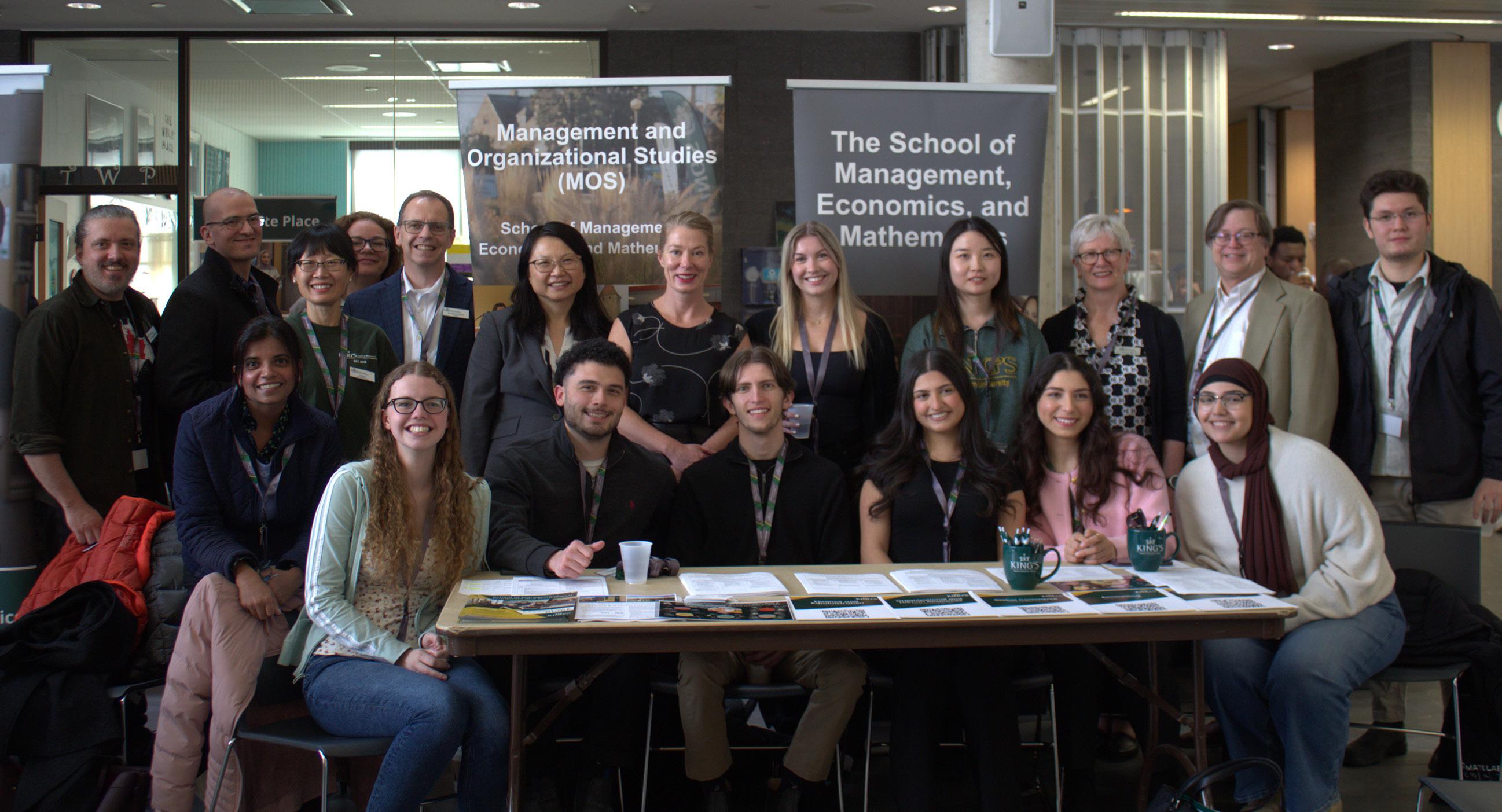
As the academic year 2023-2024 comes to a close, first, I sincerely send my warm congratulations to graduating students for their recent achievements and accomplishments. It has not been easy for them for the past three years. I admire our students for their resilience and commitment, and wish them the best in their future endeavours. For students who are returning to King’s campus in 2024-2025, I would like to share a few words to encourage them not only to regularly attend lectures and hand in assignments, but also actively participate in activities hosted by student clubs, department, and King’s.
Many courses offered by the School of MEM foster a positive and welcoming atmosphere in the classroom, which makes students feel more motivated to attend. Faculty members in the School of Management, Economics, and Mathematics (MEM) strive to provide a positive and rewarding learning environment. This includes building rapport with their students, showing enthusiasm for their subject matter, and demonstrating that they care about student success.
Our professors also incorporate interactive learning techniques that promote student participation and engagement. These include group discussions, problem-solving activities,
case studies, and peer-review exercises that make attendance essential for participation and collaboration.
Due to the nature of the subjects in MEM –for instance, data management and analysis, artificial intelligence (AI), and machine learning – and each faculty member’s research interests and teaching focus, professors use cutting-edge industrial technology to enhance students’ learning experience and facilitate communication with them. For instance, using educational games, quizzes, or simulations makes learning more enjoyable and rewarding.
In the upcoming academic year, one of my focuses will be on building a strong academic community by promoting and utilizing the positive learning environment that MEM has. I aim to foster a sense of community and connection within the classroom by encouraging collaboration, peer support, and active participation, and create more opportunities for students to get to know each other and form study groups or a support community by working with professors and student leaders.
However, when we talk about student engagement, we are not only referring to students’ active engagement with in-class academic activities, but also social engagement
13 • MEM INSIDER • June 2024
Lydia Li, MPA, Program Manager, School of Management, Economics, and Mathematics
outside the classroom. Student clubs are where students meet others with similar interests. I encourage our students to join King’s student clubs during their first year so they can build a strong social connection outside of the classroom throughout their four-year university life. Student clubs are also a place where smart minds spark innovative ideas. I must give credit to student leaders at King’s who unite students from all over the world and make King’s “a place to be and a place to become.”
Finding their first job is always challenging for recent university graduates. That is why my second focus next year is to strengthen collaborations with student organizations, alumni networks, and industry partners to create a more cohesive and integrated approach to career development initiatives. The School of MEM will keep close connections with student leaders to effectively promote the activities we offer. We plan to invite more MEM alumni who are industry leaders to speak to students about industry trends, qualities that employers seek, and how to effectively “brand” themselves in the job market.
A degree from King’s is valuable, and the experience students gain from their four years here is priceless. We are only young once. Let’s live university life to the fullest and make it memorable and life-long lasting.
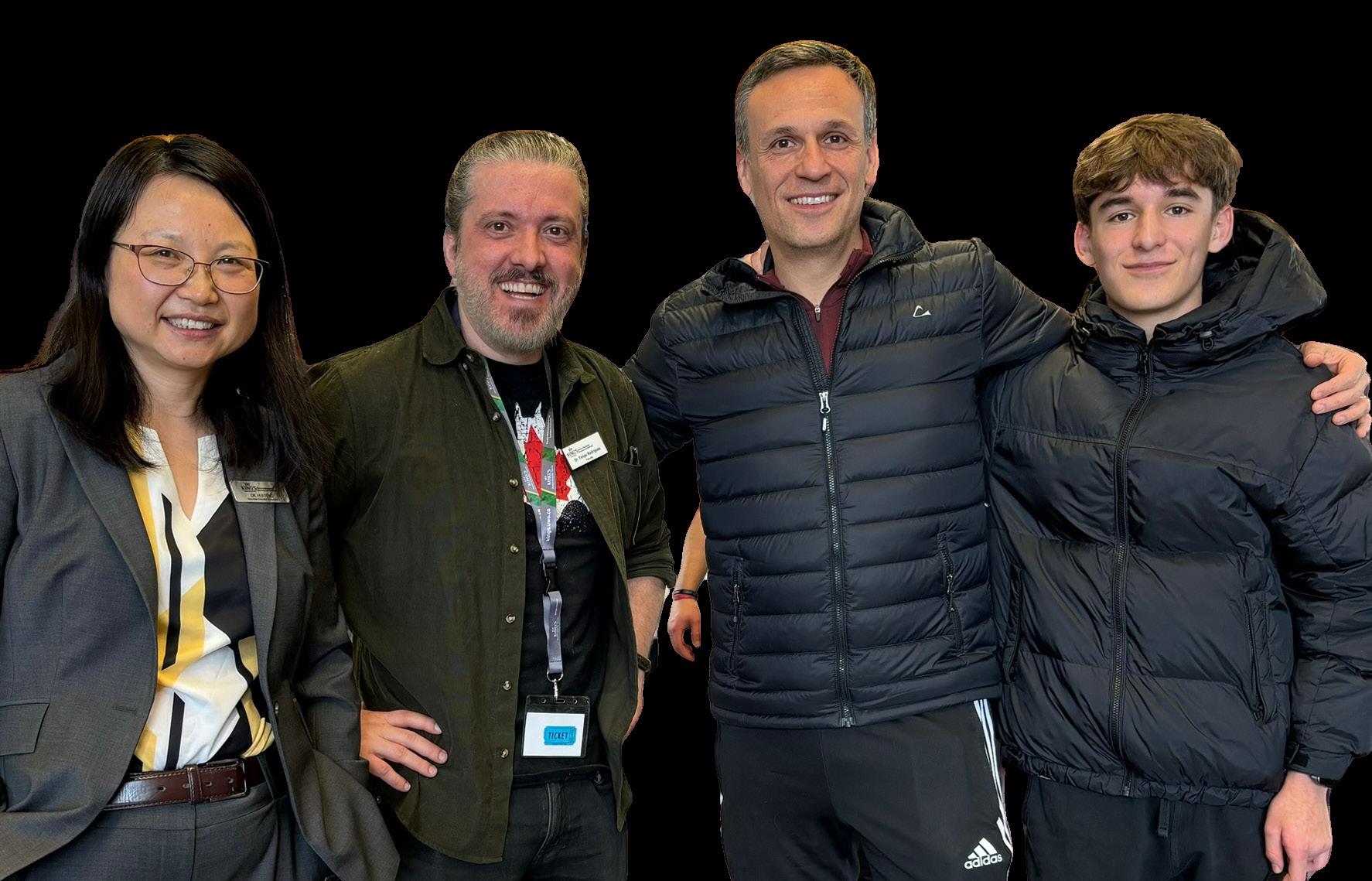
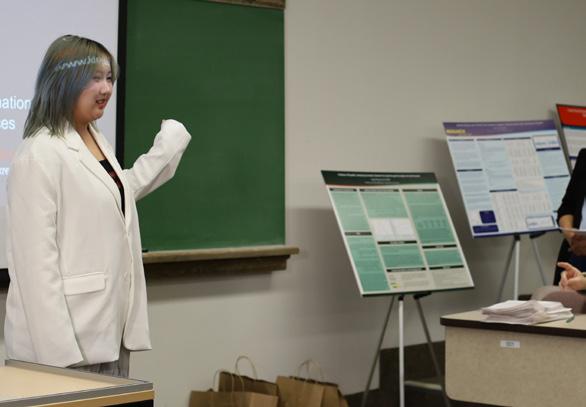
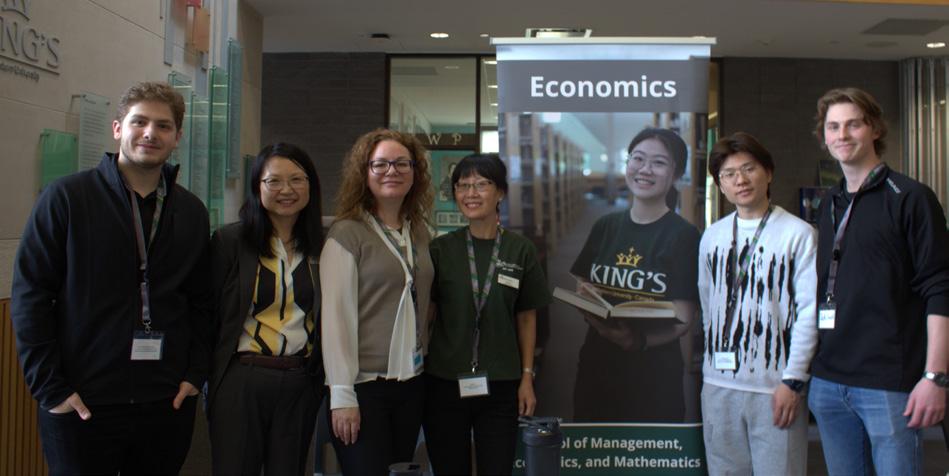
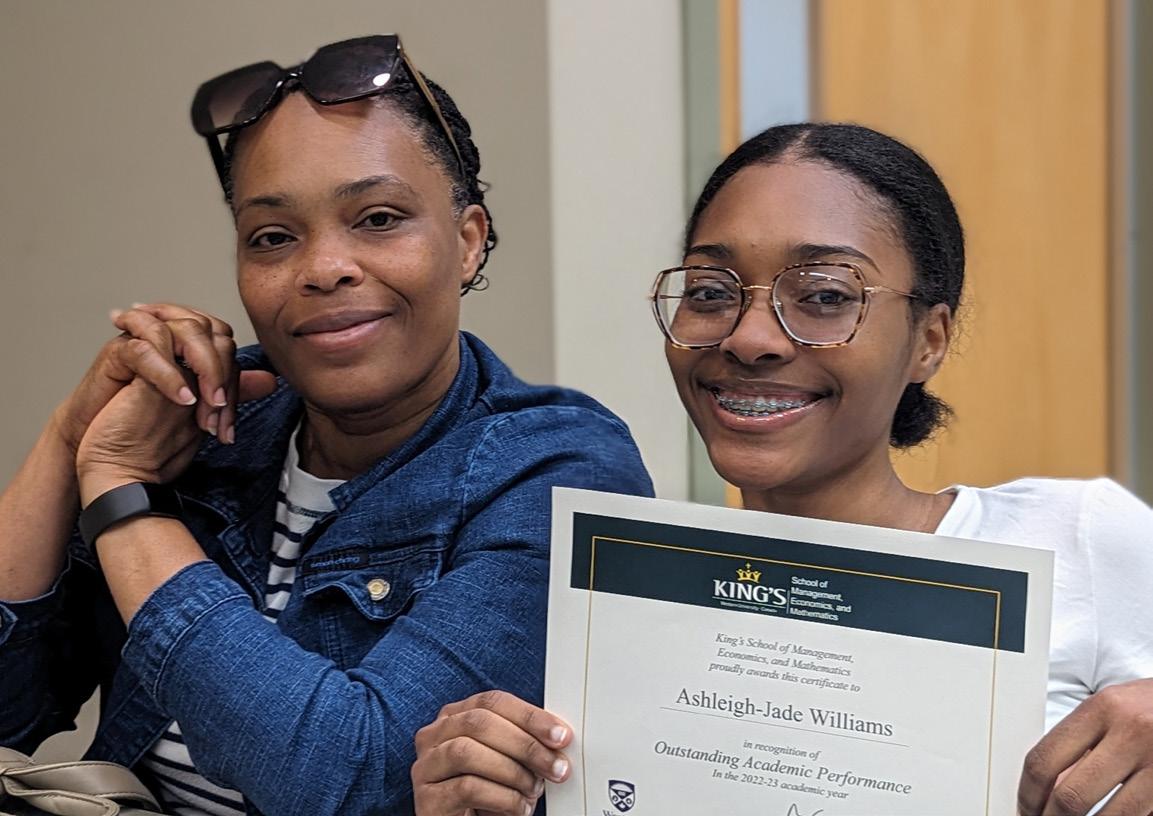

FROM
FANSHAWE TO KING'S: A TRANSFORMATIVE EXPERIENCE
By James Birch, Fourth-year student in MOS with an honours specialization in Accounting
Transitioning from Fanshawe College to King’s University College in 2022 marked a significant shift in my educational journey. I had spent my entire two years at Fanshawe College without stepping foot in a classroom, since the campus did not reopen from COVID-19 until the semester after I had graduated. Going back to in-person learning at a completely new school was a bit daunting. However, I quickly learned that I was not alone as I discovered that many other students from Fanshawe were making the same move, creating a sense of familiarity and community amidst my new surroundings.
One of the most striking aspects of my experience at King’s was the abundance of extracurricular activities available for students. I did not get to experience this at Fanshawe since it was all online, so this
university experience but also helped me forge meaningful connections with fellow students and develop valuable skills outside the classroom. Navigating the transfer process was made
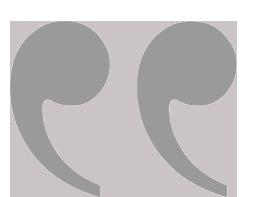
“My transfer to King’s was not just a change of scenery but a transformative experience...”
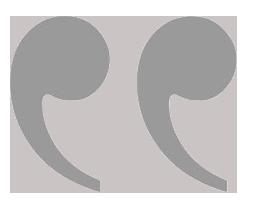
"Whether it's integrity, honesty, or passion, make sure that you are living and working in a way that is true to who you are."
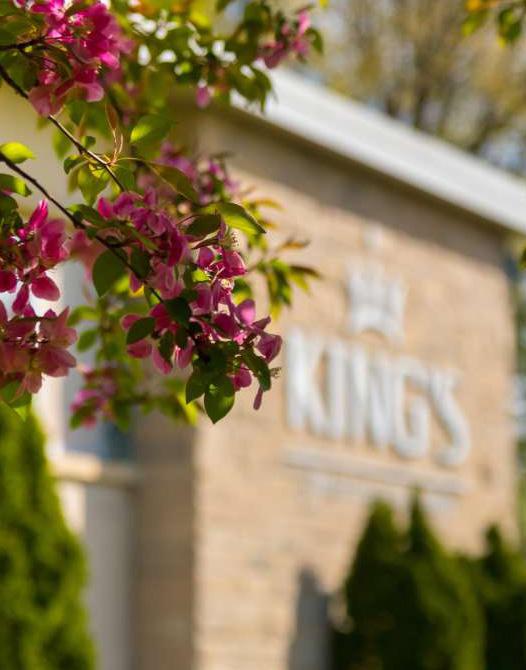
volunteering opportunities
considerably smoother by the dedicated support of the academic counsellors at King’s. They were instrumental in ensuring that all my previous credits were properly recognized and transferred, allowing me to seamlessly continue my academic journey without any setbacks. With their guidance, I was also able to switch to an honours specialization from the specialization that I was assigned when I first transferred. On top of this, their guidance and assistance allowed me to excel in my studies at King’s, which paid dividends when I received two academic awards this year. The academic counsellors provided reassurance during what could have otherwise been a daunting transition, highlighting the university’s commitment to the success and well-being of its students.
council events this enriched
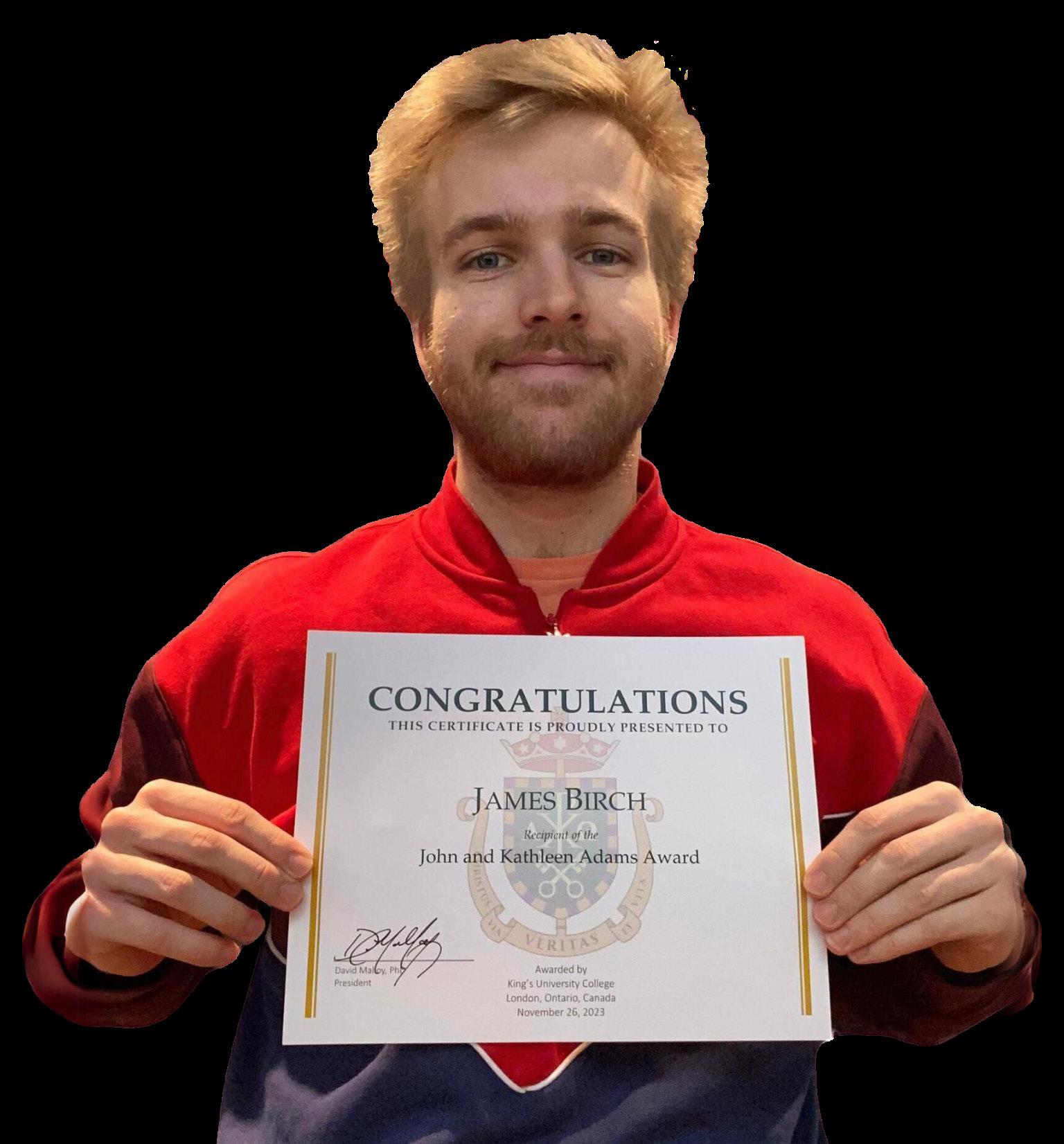
I wanted to write this piece for the MEM insider for any student going through or considering the transfer process from Fanshawe to King’s. My transfer to King’s was not just a change of scenery but a transformative experience that allowed me to build on everything I had learned from Fanshawe. From the support of the faculty to the already existing network of Fanshawe alumni, and the welcoming studious and social environment for all students, all these aspects allowed me to excel at King’s.
15 • MEM INSIDER • June 2024 14 • MEM INSIDER • June 2024
ENTREPRENEURIAL THINKING: AN INNOVATION IN BUSINESS COURSE
By Aiqingqing Li, First-year MOS student
Management and Organizational Studies (MOS) 2255, Entrepreneurial Thinking, is a second-year course that provides a broad overview of entrepreneurship. It focuses on the “effectuation” logic that helps students develop an entrepreneurial mindset. I interviewed the course instructor, Dr. Sergio Janczak, who is a Professor of Entrepreneurship and Cross-Cultural Management at King's University College.
Can you expand on how MOS 2255 differs in its approach to business learning and decision-making?
Dr. Janczak: Picture this: you're at a crossroads. One path is a well-paved street

the world around you. This isn't a journey with a fixed endpoint; it's about uncovering your potential to create and innovate. In MOS 2255, we don't just teach students to reach a destination; we inspire them to see the possibilities along the way and beyond.
What is the structure of the course, and besides the lecture, what else can they experience?
Dr. Janczak: It is an essay course, but we want to make it interesting. We incorporate in-class group learning activities, such as constructing with LEGO® or collaborating in outdoor team-building tasks. Students are encouraged to reflect on their experiences
"This adventure of entrepreneurship is about being open to the unexpected and learning that the real art of entrepreneurship unfolds when you're adaptable, creative, and ready to work with the world around you."
through a bustling city, which is like playing a game with rules you already know – you plan, predict, and control every step to reach your goal. It's safe and structured, but with no surprise or serendipity. The other path is a trail through the woods, where the route is not clear, and you might need to make your own path using the tools you find along the way. This path represents “effectuation logic.” In the woods, you start with the essentials – in this case, the core principles of entrepreneurship. Then, as you progress, you make decisions on the spot, learn to rely on your wits, collaborate with peers, and sometimes improvise with the resources you have. This adventure of entrepreneurship is about being open to the unexpected and learning that the real art of entrepreneurship unfolds when you're adaptable, creative, and ready to work with
and present two video clips that demonstrate their understanding of entrepreneurship. We also screen movie clips in class, such as from The Pursuit of Happyness, to inspire students with different entrepreneurships through various scenarios.
What stands out as a point for "effectuation logic" compared to "causation logic"?
Dr. Janczak: Many entrepreneurs might face the challenge of starting with limited resources. Sometimes, even if you have a fantastic idea, nobody is willing to buy it. The shift from the conventional "causation logic” is significant, which is from the focus on identifying a goal and exploring necessary resources, to "effectuation logic,” which is
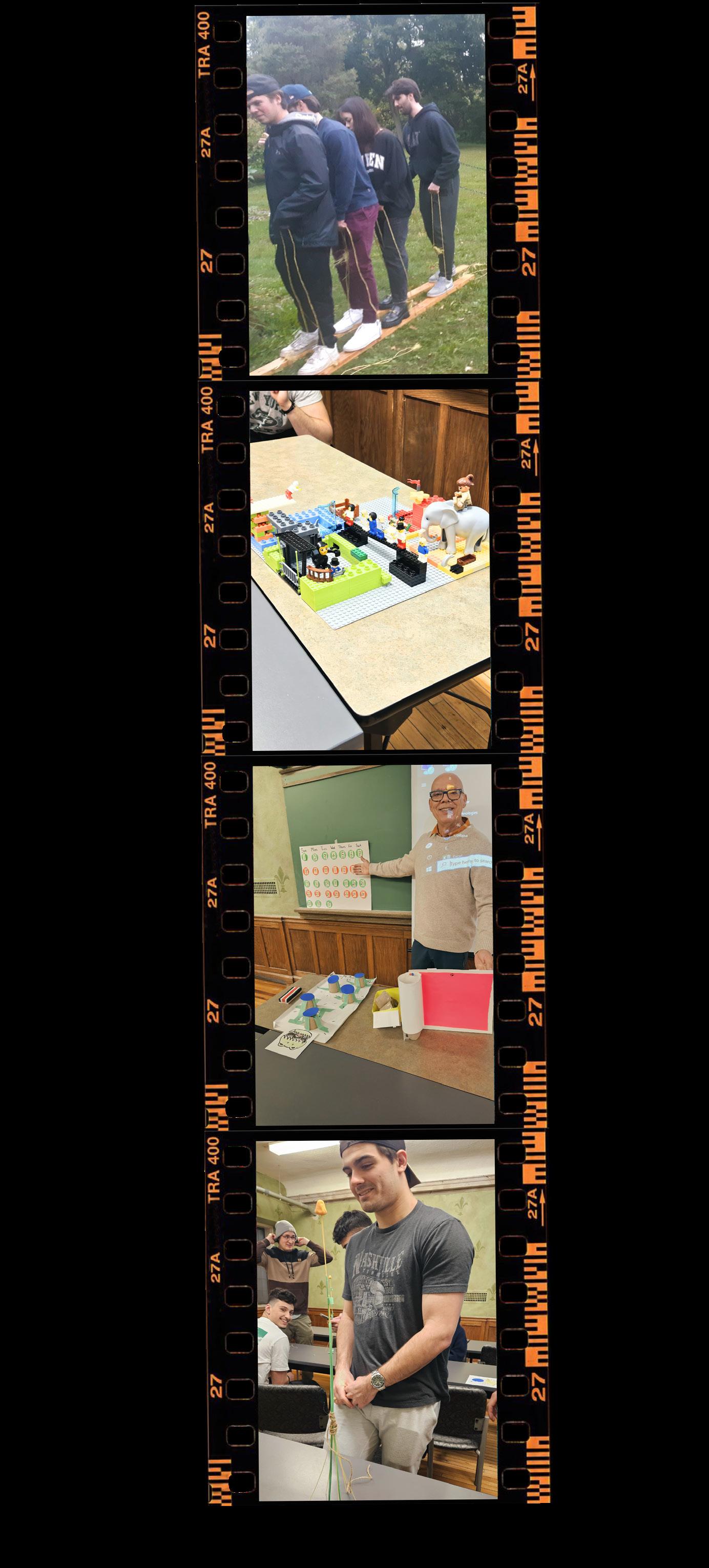
more like starting with the limited resources already at hand and exploring the best possible outcomes to overcome possible obstacles. The core principle that our course emphasizes is the importance of accessible resources and networks to create solutions for future concerns, and it highlights the potential opportunities to build connections in the local community through daily activities. It also encourages thoughtful considerations of what can be achieved with current resources, fostering an innovative and adaptive mindset.
Have you incorporated innovative tools like AI to assist students in developing their entrepreneurial skills?
Dr. Janczak: Absolutely. Recognizing the pivotal role of technology in education, I've initiated an AI tutor channel to cultivate effectuation logic skills for students in MOS 2555. This AI platform on ChatGPT serves as a simulated environment where my MOS2255 students can enhance their entrepreneurial thinking. It's a space for them to receive guidance, valuable insights, and practice.
You’ll find Dr. Janczak’s AI tutor channel for MOS 2255 at https://chat.openai.com/g/g-yWuwiSCapmentoring-endeavors-as-seasoned-entrepreneur.
“So here's to the brave, who start with a thought, With resources at hand, not just what's sought. In the effectual world, they find their way, Creating tomorrow, from the seeds of today.” -AI-generated poem

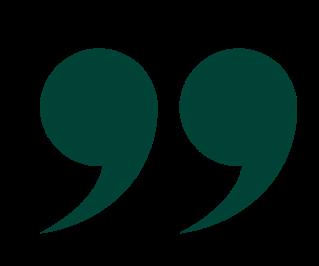
"In MOS 2255, we don't just teach students to reach a destination; we inspire them to see the possibilities along the way and beyond."
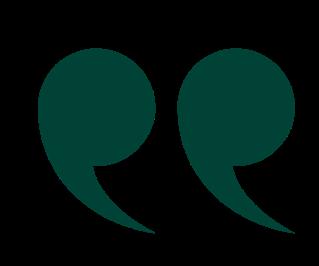
17 • MEM INSIDER • June 2024 16 • MEM INSIDER • June 2024
FACULTY PROFILE: DR. NATALIA BEZMATERNYKH
By Boya Yang, CTBU third-year student in MOS honours double major in Accounting and Finance

Dr. Natalia Bezmaternykh, an Assistant Professor in the School of Management, Economics, and Mathematics (MEM), joined King’s in the summer of 2023.
What is your professional background and in what direction are you conducting your research?
Dr. Bezmaternykh: I graduated from a PhD program in 2019 and found my research interest in environmental economics while doing my PhD. After graduating, I started teaching and took a number of classes, especially in studies related to the pandemic. At the same time, I did a postdoc at the University of Waterloo here in Canada. After that, I started my educational journey at King’s.
What motivated you to pursue a career in academia and focus on the connection or relationship between economics and the environment?
Dr. Bezmaternykh: I like carrying out research and always found a lot of enjoyment working in that area. Academia gives me the freedom to do research into whatever aspect I want. Any other job would force me to focus on a certain direction, but academia can provide more options. In addition, I believe that teaching and research go hand in hand, and since I enjoy teaching as much as doing research, I have tried to do both.
Could you provide an overview of your current research interests in environmental economics and your future research direction?
Dr. Bezmaternykh: Currently, the main focus
of my research is on international agreements, international trade, and environmental agreements. Trade agreements, such as NAFTA [the North American Free Trade Agreement] or USMCA [the United States-Mexico-Canada Agreement], have over 100 unique environmental laws incorporated within them. What has interested me most about this area is how we can get more countries to sit around the table, discuss issues, and make environmental agreements. Let’s put it this way: although it is difficult to find one single method that will oblige countries to stick to the right path, trade seems to provide a magical formula for bringing together many different countries and enabling them to discuss environmental or regional environmental issues, along with the trade agreements and deals that they seek to make and benefit from.
Between economic interests and environmental protection, how should we balance the relationship?
Dr. Bezmaternykh: I think that's one of the big questions in today's society. It's very hard to imagine that suddenly we’ll all stop consuming, as we enjoy it and it’s necessary in order to survive, but at the same time, the environment is important as well. We cannot just take as much as we want from nature and throw back everything that we don’t want, and then assume that it will start cleaning itself up, as if by magic, without our assistance. I think it's a problem that can be considered on multiple levels, including the global level, of course. Thus, people need to understand that we all live in the same world and we cannot just keep transferring labour production to developing countries and keep pushing our garbage offshore to underdeveloped countries. Nevertheless, there are many problems that can be solved within countries or even on an
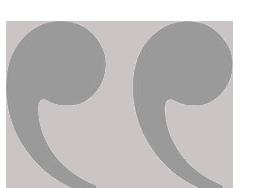
individual level. Individuals, for example, can decide what and how much to buy and how much to consume. We would mention here that household demand is often underestimated when it comes to environmental economics, so we either keep just opting for single-use plastic or buy a plastic bottle of water. That's one of our choices. On the other hand, we have another choice where we use reusable containers, avoid using disposable plastic in any form, and even if we do buy fast fashion, keep our purchases to a limited number of pieces of clothing and then wear them over longer periods.
What specific aspects of environmental economics do you find most compelling or challenging?
Dr. Bezmaternykh: I like international agreements and find them both challenging and interesting because that's where my passion for game theory kicks in as well. I believe that game theory can provide us with many answers and is such a great application of Keynesian theory because here we are talking about players need to consider what the other players will do, and to me, this is attractive. In addition, I got very interested in water during my research and my postdoc as we're in Canada, where we have so much water. Nevertheless, it doesn't mean that we can just abuse it as much as we might want; rather, it means we are responsible for taking care of this valuable resource, and aiding the national water boards of countries that nowadays experience either physical or economic water scarcity. “Physical” in this context means that there is no water. A country like Australia needs to trade water rights now, just to provide enough water for competing demands from water users, because competition encourages the best use of scarce water resources. Throughout the world, there are nations that cannot afford to take water out of the ground, and in those places, right to
access is a very different matter. There is water but they cannot economically secure access to it. Consequently, from a pure environmental economics point of view, it's more interesting to consider physical water scarcity in this instance, but, as economists, we cannot ignore it either.
What made you choose London and King’s?
Dr. Bezmaternykh: Toronto has a lot to offer, but London has a lot to offer as well. They're both very nice places.
How do you approach teaching environmental economics to make it engaging and relevant for students?
Dr. Bezmaternykh: Environmental economics can offer quite a few things in terms of the classes. It's not your classical micro topic or macro topic, where everything is more or less boxed in. So environmental economics is a lot more creative for the instructor. Students can choose from suggested topics but can narrow down the question, or they can propose their own topic. I give them an opportunity to work in groups, but I don't force them to work that way because people are different; some prefer to work alone and that's fine. I have also come up with some questions to encourage students to discuss in small groups. They can think about the topic individually, and then they can share ideas throughout the rest of the course, or if someone prefers to just share with me, that's totally fine also.
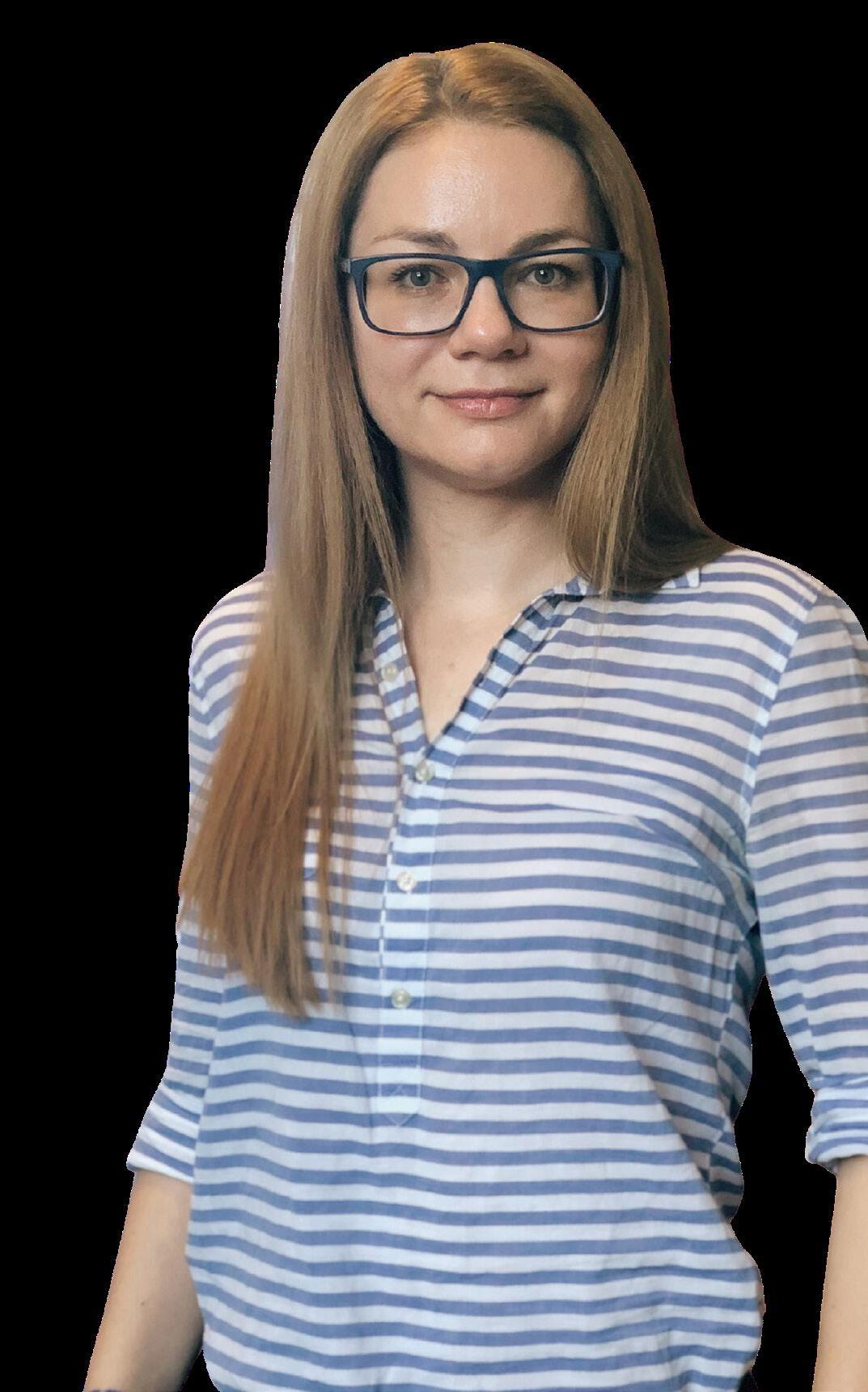
18 • MEM INSIDER • June 2024
INTERDISCIPLINARY TEACHING OF PROFESSIONALISM AND ETHICS
AN INTERVIEW WITH DR. JOSEPHINE GEMSON, ASSOCIATE PROFESSOR OF FINANCE
 By Shuai "Paul" Chen, Fourth-year student in MOS specializing in Finance and Administration
By Shuai "Paul" Chen, Fourth-year student in MOS specializing in Finance and Administration
Integrating ethical issues into the curriculum has become essential, given the way that finance and economics are developing. Future leaders in business will continue to be shaped by the foundation of ethics as they negotiate complex market dynamics and corporate decisions. I interviewed Associate Professor of Finance Dr. Josephine Gemson, who is well known for both her creative approach to teaching ethics and her proficiency in private equity and infrastructure finance.
Bridging disciplines: Given your profound expertise in finance and economics, particularly in private equity and infrastructure finance, how do you integrate ethical considerations into your teaching and research?
Dr. Gemson: Ethics is now part of the curriculum for the CFA [Chartered Financial Analyst designation] and the CPA [Chartered Professional Accountant designation]. Many institutions have recognised that in addition to regulation, education and awareness are paramount. So they have welcomed and embraced ethics in their institutions and are encouraging member organisations to develop a code of ethics and a standard for professional conduct.
Our BMOS degrees have courses where we address the foundations of ethics and principles relevant to the study, and discuss case studies and ethical dilemmas, and students present realworld examples and engage in critical thinking about ethical issues. Our class is structured into teaching components, and discussion and training components. We have training and awareness on issues such as plagiarism, which was conducted in association with The Write Place at King’s University College. Jennifer Matthews, the CEO of the Better Business Bureau of Western Ontario, addressed students on workplace ethics. Our former student and BMOS alumnus Ahmed Al Fares, who is currently a senior management consultant with KPMG, also spoke to students on various ethical and life issues.
The sessions in class are a good blend of learning, training, and leading by example to encourage discussion and dialogue on various ethical issues. Our classroom continues to be a safe and inclusive space, where students feel comfortable raising questions, and engaging in conversation with their peers. I think these sessions are very engaging.
In addition, as part of their project, students review codes of conduct of the CFA, the CPA, and other important ethical careers in Canada and the world. Students familiarize themselves with ethical policies and guidelines and critique the same, by perhaps providing insights on what could be done to improve the codes of conduct.
Can you share an example where interdisciplinary approaches enriched the learning experience?
Dr. Gemson: One notable feature of King’s and the School of Management, Economics, and Mathematics [MEM] is how seamlessly multiple disciplines co-exist with each other.
From my perspective, an example where an interdisciplinary approach enriched my learning experience is when I recently participated as a panelist in the “Spirituality in Academics” talk organized by Dr. Caroline Chau and the King’s Centre for Advanced Research in Catholic Thought [CARCT]. Dr. Antonio Calcagno from King’s Department of Philosophy, Dr. Chaya Halberstam from Religious Studies, and I discussed various aspects of spirituality and how they integrate into academics. Guests included members from all faculties of King’s as well as from Saint Peter’s Seminary. The whole experience was almost surreal because it had such value-added dialogue and discussion, perspectives and introspection into care and justice, and provided metrics on how we ought to live – pretty much the foundation of ethics. We also looked at money, wealth, and value creation in different ways. This also very closely integrated with the theory and practice of finance.
Real-world examples: Can you share an example of a class discussion or activity you've used to teach your students about the importance of ethics in finance?
Dr. Gemson: The case method is very popular, and continues to be a useful tool for class discussions. We discuss various cases directly and indirectly related to financial and accounting ethics. Such cases allow for the exploration of ethical considerations and to also understand the importance of ethics in business.
In addition to case studies, we delve into recent events and happenings, relevant news, and rules and regulations, and any updates to those. Cases and role-plays are also used frequently, where students are given various levels of information, and discuss next steps and courses of action in smaller groups before they present their views in class. Information about the case also begins to evolve as the case builds up.
Through these methods, we can begin to understand that relationships can be very complex, and it's interesting to see how students navigate through complex decisionmaking by applying their learnings of ethics and professionalism.
Finally, guest speakers and practitioner sessions bring the real world right into the classroom!
21 • MEM INSIDER • June 2024

Ethical Challenges: What is one ethical challenge you often discuss in your classes related to private equity or corporate finance?
Dr. Gemson: This may not be confined only to private equity or corporate finance but really pertains to the larger umbrella of business ethics. The concept of value and how it can be defined and what it means is one aspect that is often discussed in class. Value is a very important aspect for managers in a company to understand and realize. Value is so much more than a monetary number. It includes a lot of qualities such as trust and truthfulness, and objectivity, integrity, and loyalty, which are fundamental to the creation and maintenance of ethics.
We often discuss what tone at the top means and how important and relevant it is, too. It is critical for a company and its well-being to have a good and ethical tone at the top.
Student perspectives: What are some of the most insightful observations or questions your students have raised about ethics in finance?
Dr. Gemson: As we navigate through the various aspects of ethics and professionalism, students have often commented how intricately we, as stakeholders, are directly and indirectly connected and involved with each other, the organization, and society at large. Students are also extremely aware of human relationships and how complex they can be, leadi complex decision-making.
Impactful learning: Reflecting on your teaching career, could yo a particularly impactful moment or outcome where interdisciplinary teaching methods significantly influenced a student's understand or perspective on professionalism and ethics in finance?
Dr. Gemson: Any interdisciplinary method that enhances understanding of both ethics and finance, one that fosters collaboration, critical thinking, and application of concepts, is welcomed. The courses offered at the School of MEM are very holistic and impactful. For example, students in BMOS can avail themselves of courses in Economics, and Analytics and Decision Sciences, and vice versa.
Advice for students: What advice do you give to students about maintaining ethical standards in their future finance careers?
Dr. Gemson: My advice for students: continue to be ethical. Hold yourself and your decision-making to the highest standards. Believe in y be true to your values. There are times when you would need to for what is right and what you believe in; at those junctures, will have the courage to do so, even if it means standing alone
MANIK SINGH'S TABLE TENNIS TALE
John Milner, Communications Coordinator, Writing

After being introduced to the sport of table tennis at 10 years of age, Manik Singh, a fourth-year BMOS student specializing in Finance and Administration, is now the highest-ranked table tennis player in Canada, according to the National Collegiate Table Tennis Association (NCTTA).
Shortly after picking up the paddle in his hometown of New Delhi, India, Singh’s skills caught the attention of his school’s table tennis coach. The coach’s encouragement and belief in his talents inspired Singh to embrace the sport wholeheartedly and join the school’s team. “The mechanics of table tennis fascinated me from the start. I effortlessly grasped the intricacies of spins, effectively countered peculiar serves, and thrived under pressure. This mentally challenging sport became my true passion,” says Singh.
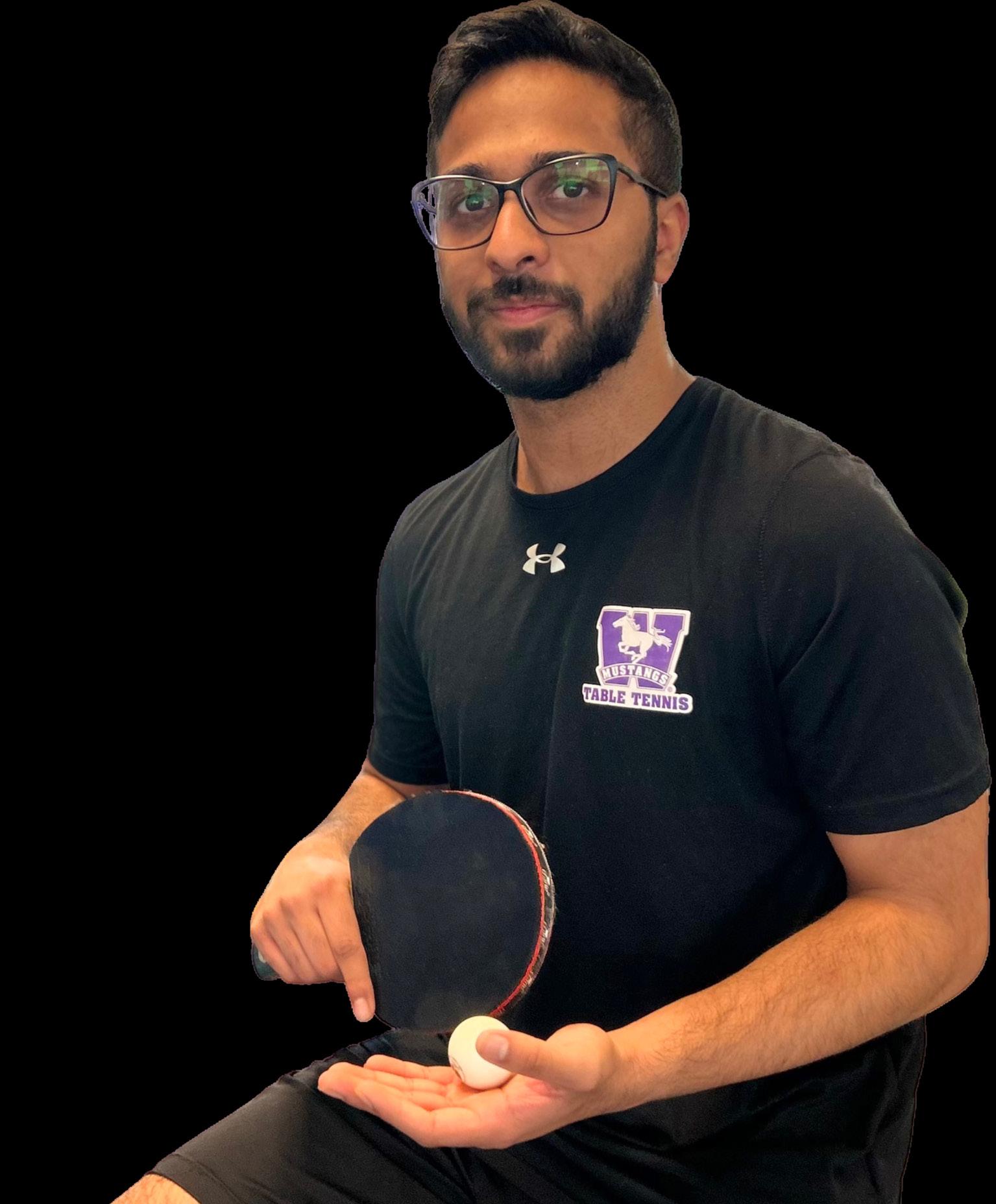
Practice, and focus on his diet and fitness, combined with support from his high school, the Mother’s International School, and his parents, propelled Singh to a spot on the Indian National Table Tennis Team in 2017.
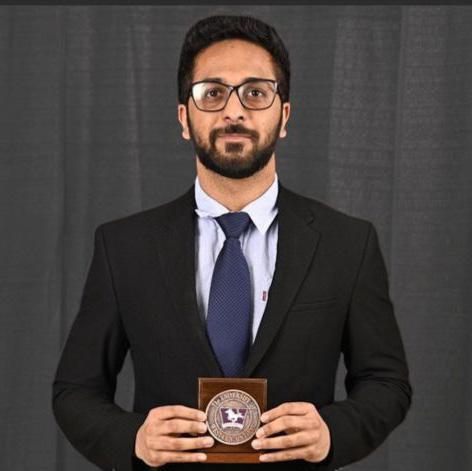
“Representing my country in international tournaments became a dream come true,” he
After arriving at King’s to begin his studies in the fall of 2020, Singh became a member of the Western Mustangs Table Tennis team. He says 2022-2023 was an outstanding year, both for the team and himself as an individual. Singh won the gold medal in individual competitions at the divisional tournament and a silver medal at regionals.
“To add to these achievements, I maintained an undefeated record of 16-0 in the team event throughout the entire season, a feat that fills me with immense pride,” says Singh.
Singh is very grateful for the support he has received from King’s as a student-athlete. “King’s is a great place for athletes as it supports students in every way possible and has given me the opportunity to excel in my sport.” He credits the success of his journey from a tennis enthusiast to representing his country and university at the highest levels to his passion, hard work, and the unwavering support of those around him.
“Throughout this remarkable journey, sports taught me invaluable life lessons, including discipline, teamwork, and unwavering dedication. I firmly believe that hard work guarantees success, regardless of the obstacles faced,” says Singh.
23 • MEM INSIDER • June 2024
Understanding the international student experience. Perspectives in their own voice. Essay from Writing 1002.

A MIGATORY BIRD ON HER WAY

“Studying abroad compelled me to accept new cultures and knowledge and see things from different perspectives.”
My mother, who always wears detailed makeup, looks much younger than her peers and remains unpredictable and mysterious in my mind. Unlike the traditional deferential Chinese parent-child relationship, it seems like I could have another kind of attachment to her.
When I decided to study abroad at the age of fifteen, my mom was the only person who supported my decision, possibly because she also left her parents and four older siblings when she was in her twenties. She was marginalized by her family because her siblings had to care for their parents without her help. This might be the cost of freedom, but she became more confident in her growing path.
My grandma asked me, "Can you really take care of yourself and get accustomed to a new place by yourself, and will you be really happier?"
"Yes, I can," I said, seemingly with confidence. But internally, I was still unsure of what would happen after I went to Canada. I had just experienced cyberbullying, which was like a nightmare around me, and all I could think about was escaping at that moment.
"You take after your mother in many aspects; I hope you could be like migratory birds." Her dark eyes were full of depression. "Take care."
I was so young and naive that I was blind to her concerns and expectations, and did not really
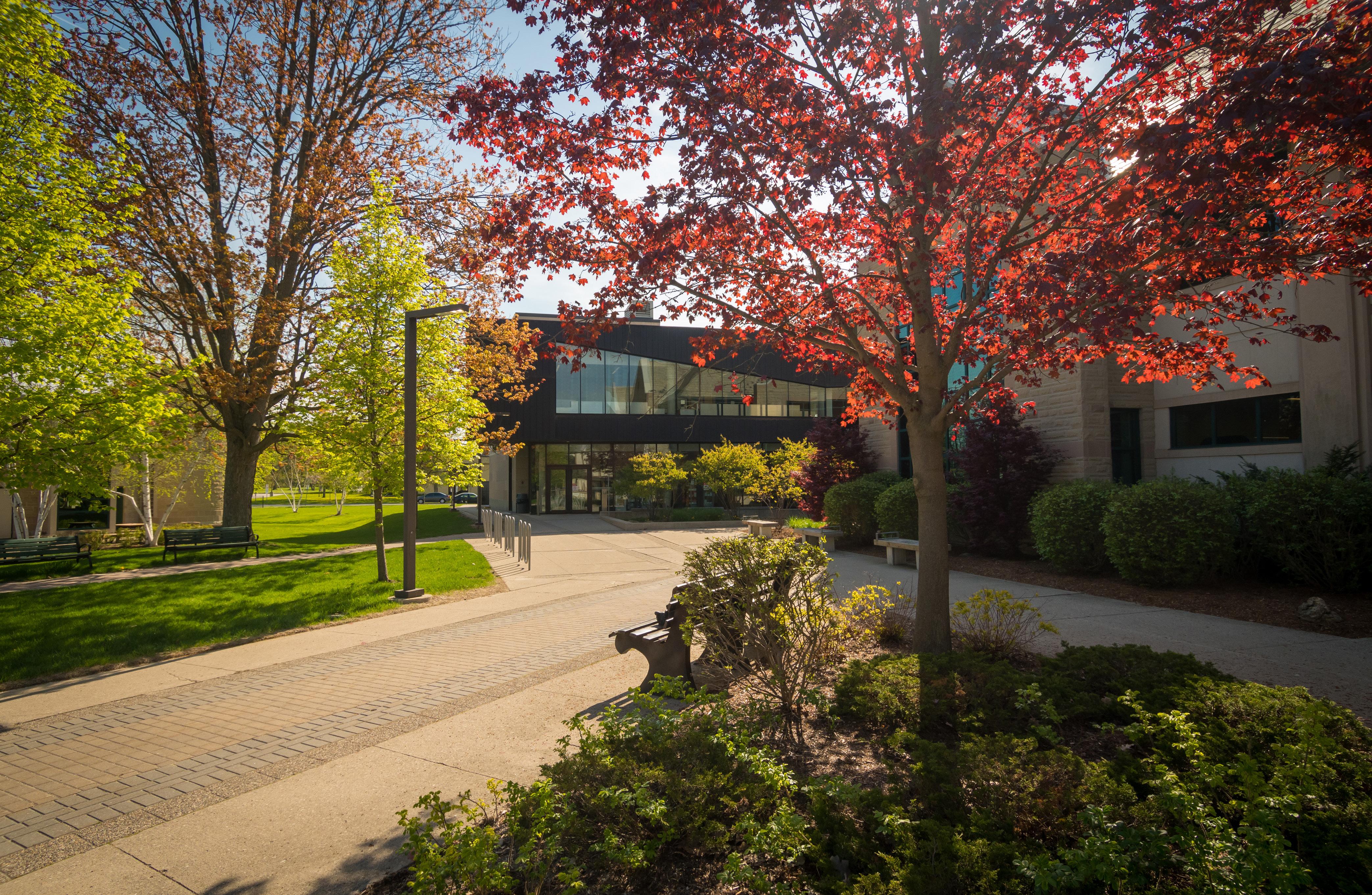
understand the symbolization of migratory birds at that time.
After I arrived in Canada, despite the good intentions of the counsellors and the dorm staff, they did not understand what a sensitive girl really needed in an unfamiliar environment. I struggled with fear about integrating into the new culture, concern about being seen as a deviant by local people, and the anxiety of the language barrier, among other worries. I was also at a loss because typically, I had nobody to rely on in this foreign country.
My heavy schoolwork and class schedule forced me to adapt to the new learning environment as quickly as possible. During that period, I witnessed some people using drugs to kill time, some were always at parties, and some, like me, who were used to being alone. Studying abroad compelled me to accept new cultures and knowledge and see things from different perspectives. Solving the language barrier and experiencing cultural differences alone seemed to equip me with the courage to start over in any place.
When I returned to my home country, I asked my grandma, "Do you ever regret staying in the same place throughout your whole life and not working because you needed to take care of your family?"
"No, I was willing to do so," Grandma answered, her eyes sparkling with happiness when talking
about her children’s achievements and her cute grandchildren. I saw so many wrinkles in her face that I had never noticed before.
Just before I went back to Canada, my grandma was diagnosed with both Parkinson's and dementia, with symptoms including uncontrollable shaking, slow movement, and memory loss. She looked shorter, weaker, and preferred to squint to see things clearly. There wasn’t a trace of a smile on her face. Grandma seemed to know that I was going to leave again, and she held my hand tremulously, but not a word came out.
"I will be good, don't worry about me. I will come back soon." These were my last words to her.
My grandma is a benevolent woman. It was my grandma who taught me the value of honesty and politeness when I was a little girl. She passed away due to COVID-19 this past January; my heart was sadder than ever. After attending her funeral, I went outside. I was temporarily blinded by the sun or my tears.
I saw a line of migrating birds flying across the sky, which reminded me of Grandma’s words. Migratory birds flee to the warmer places to avoid the harsh weather and I thought that they must be running away from difficulties by flying from the north to the south for the winter every year. After the death of my grandmother, I was suddenly very afraid that she believed I would run away like the birds when confronted with difficulties. I regret that I never explained to my grandma that I wasn’t trying to escape anything to do with my family when I chose to leave. Unexpressed emotions and words will never die.
When my mom accompanied me, I asked her, “In winter, why do migratory birds always flee to the south? Did Grandma blame me because of my choice?” Tears came to my eyes; the halfformed words died in my throat.
“As the seasons follow each other in rotation, migratory birds keep flying between the south and the north. They are not escaping, but rather they bravely resist nature’s obstacles,” my mother said, looking at me. “They will come back when the weather gets warmer.”
“Did I make the wrong decision? I want to come back now. Will I have less disappointment and worries when I reach your age?”
“It takes courage whether you choose to study abroad or come back. You can always be on your way; however, you also have to learn to accept the struggles along the way. Pay more attention to some interesting people you meet, and the kindness others show you may make you feel better.” My mom answered my question; I caught a trace of agony in her voice.
That’s when it hit me that my life would never be the same, because I understood I am responsible for my personal choices. Having the autonomy to make decisions in our lives also means that we have to take the consequences entirely on ourselves.
My grandma ultimately respected my decision and hoped that I could have the courage to go back like migratory birds. She didn’t criticize my decision. The ties of family relationships will be inseparable even when people leave; family ties can potentially influence a person for the rest of her life. The road to freedom is replete with brambles and thorns for a woman.
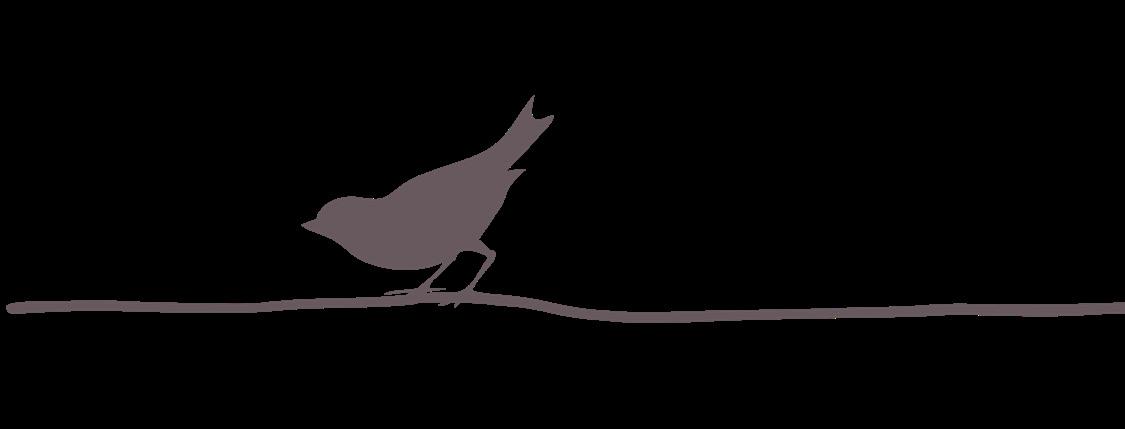 Zhixin “Nora” Wu, fourth-year student majoring in Psychology
Zhixin “Nora” Wu, fourth-year student majoring in Psychology
HAVE TO LEAP
you fly
YOU
Before
25 • MEM INSIDER • June 2024 24 • MEM INSIDER • June 2024
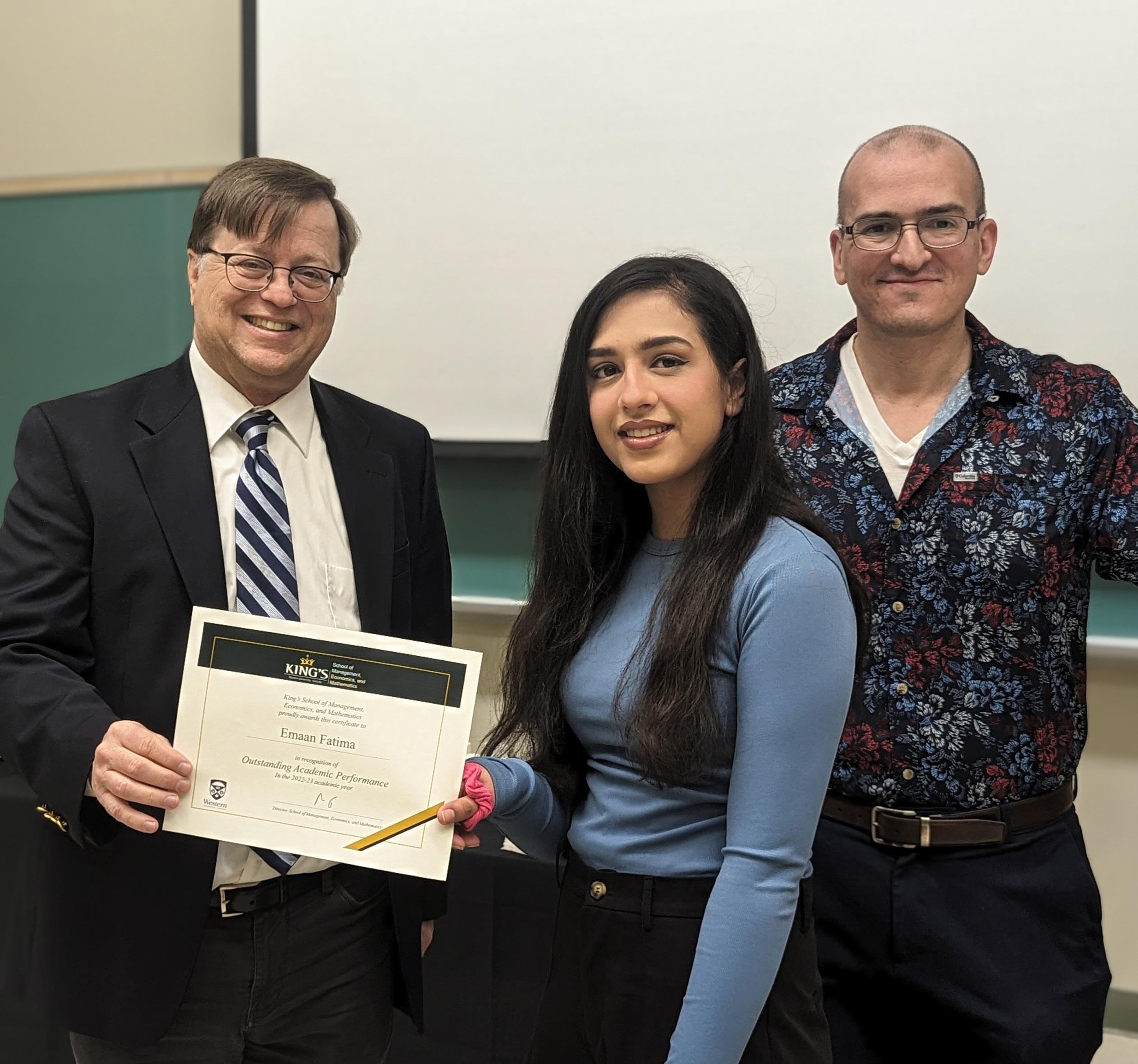


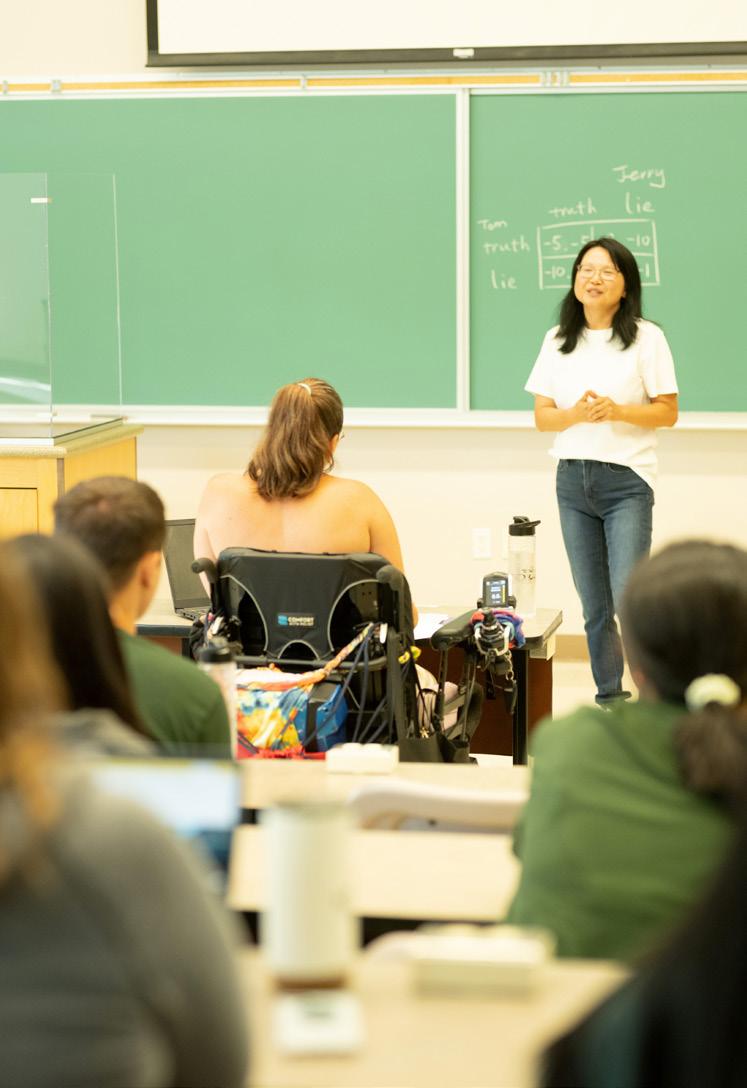
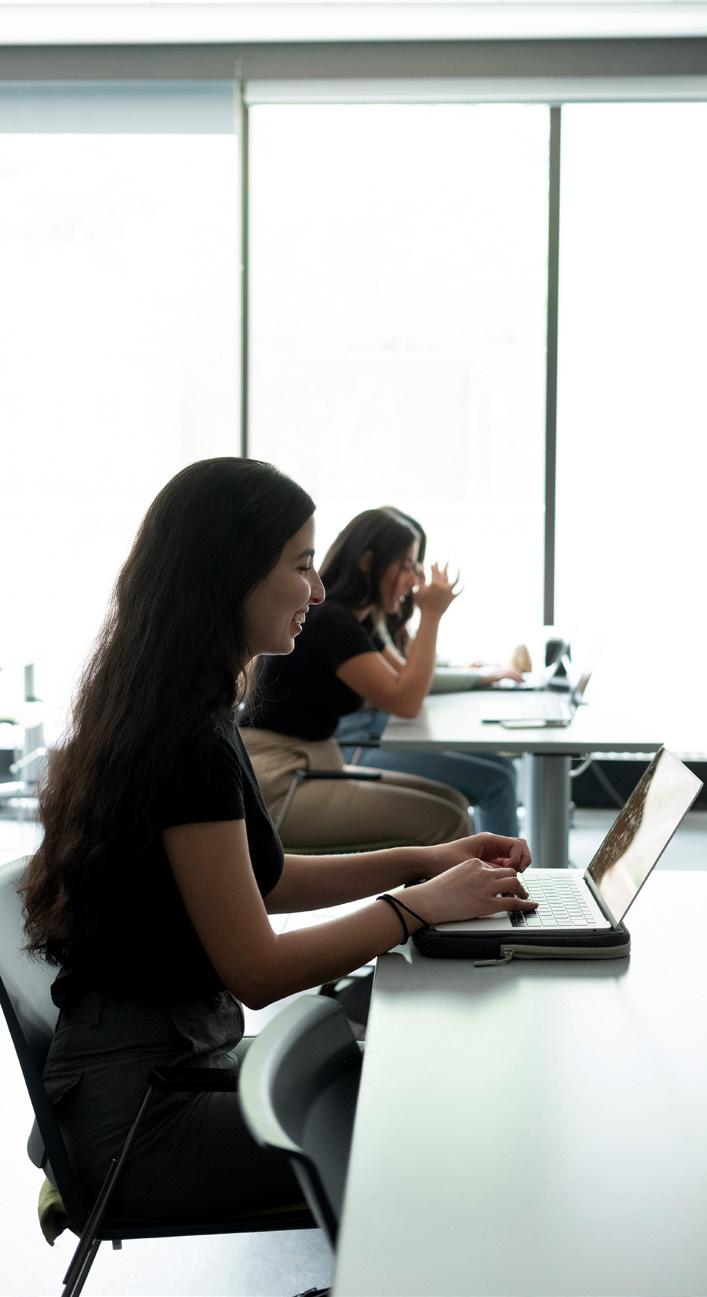
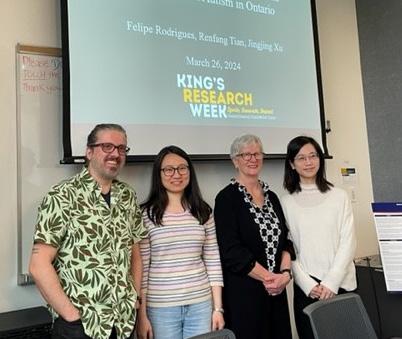
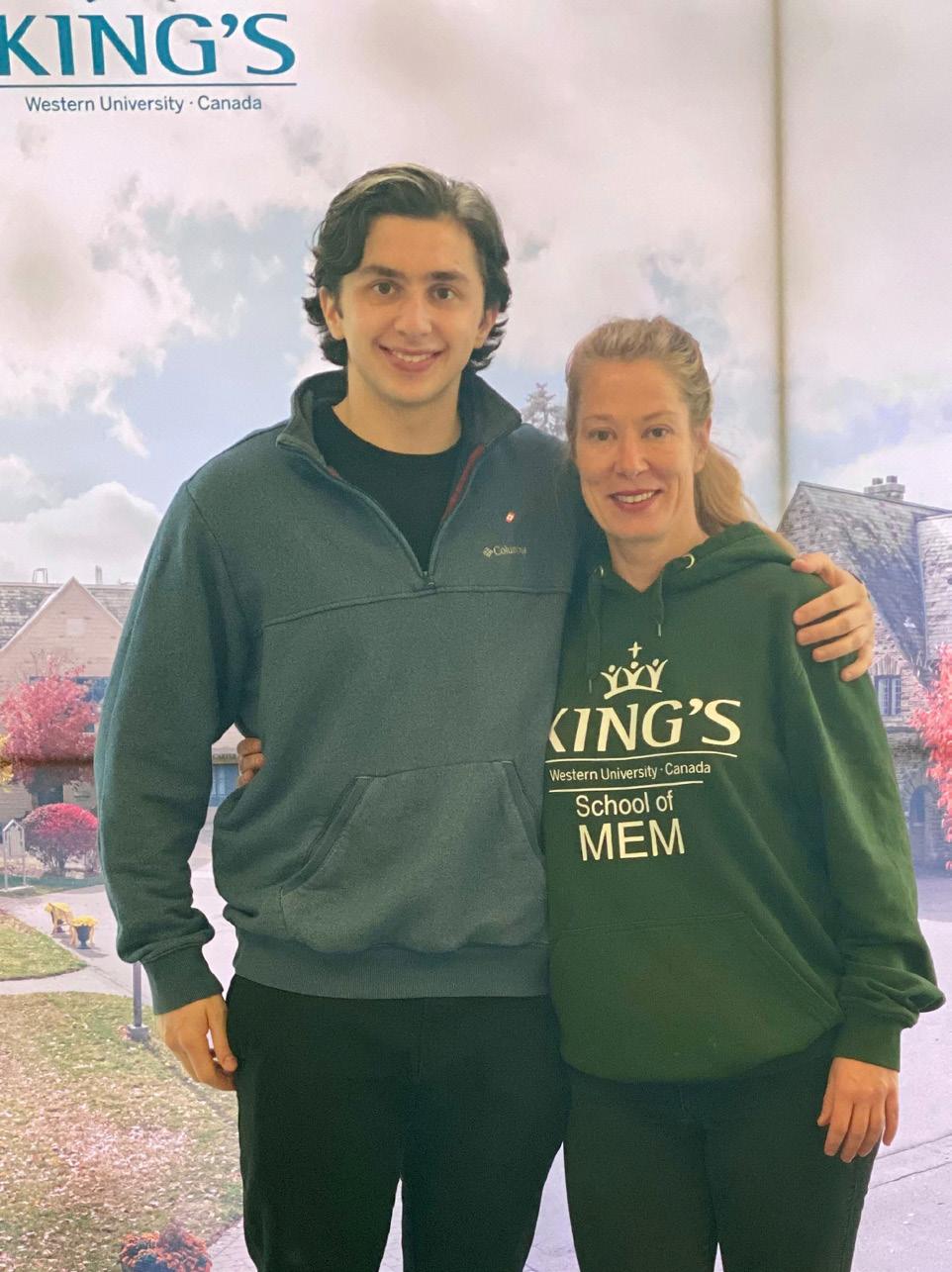
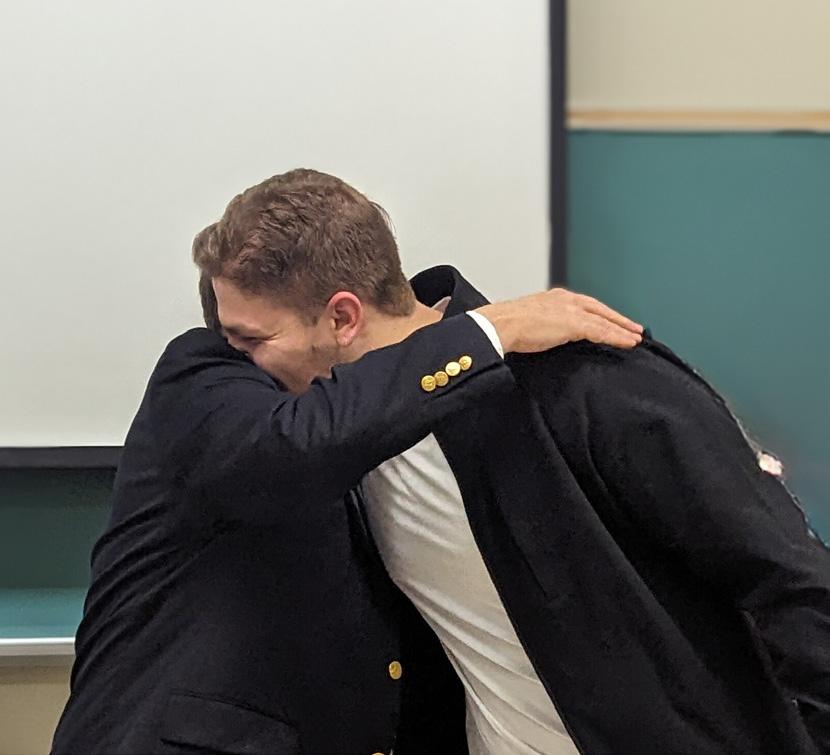
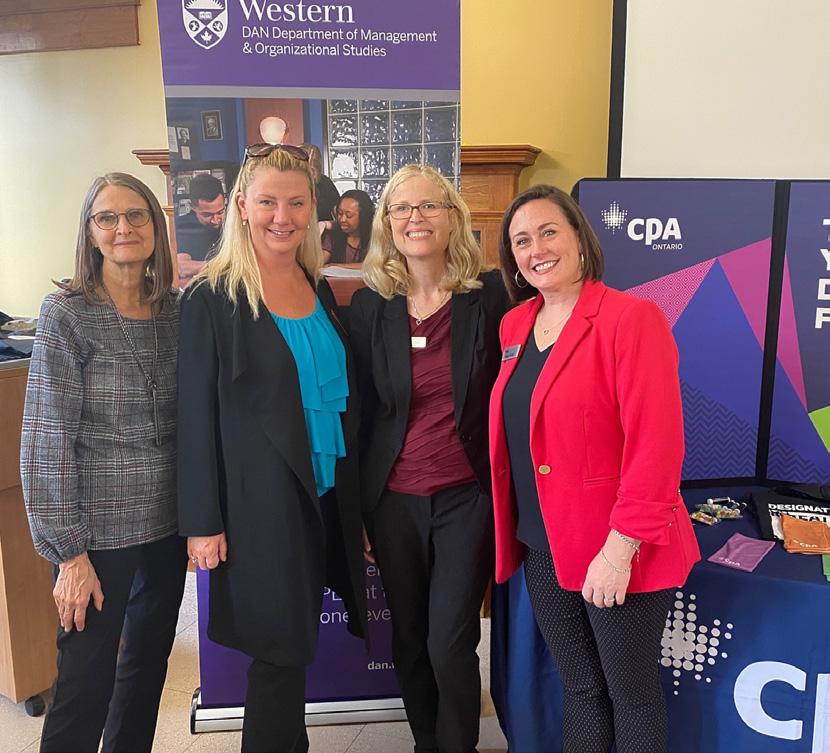

THE NIGHTMARE AT SCHOOL
By Neslihan Cetin, Fourth-year student majoring in Sociology

When I opened my eyes, I found myself in a different country. Different country, different language, different culture, and lots of different people from different countries. It was like a dream or should I say more like a nightmare? It all started exactly with going to school. As I looked around I noticed a white blanket of snow covering the ground. I was surprised at how quiet everything seemed. The only sound I could hear was my boots crackling in the snow. It was like a freezer outside. I wanted to go inside right away…
As I walked down the road, my anxiety walked with me. Anxiety is like walking down a dark and scary alley without knowing what is waiting for you. I didn't know what to expect when I went to school because they spoke a language I had only heard once in my life. The walking time to school felt as fast as the streaming rain.
The bell rang… everybody lined up and walked into the classroom. My tears were falling as I walked in. When we entered the classroom, I started to sit in the back row of the classroom. The further I was away from the teacher, the better it was for me. Just as I was sitting on the chair, I noticed two girls coming towards me. Before they said anything to me, I said, “I no English,” thinking that was the way to say, “I don’t know English.” They giggled and repeated my sentence between themselves. I felt like somebody was pouring hot water all over my head… that’s when I realized it wasn’t a nightmare. I was looking forward to finishing school that day. I took a deep breath when the bell rang. I ran and hugged my mother who was waiting for me outside, cried and said that I would not go to school again.
When I got home, the smell of my mother's cooking filled the whole house. It made me forget what happened at school and made me feel as if I was in my country.
And at the end of the day, I reminded myself that it was just my first day at school and everyone can make mistakes. I realized that if I gave up right away, at my first mistake, I would not be able to achieve the things I wanted to do. I fell asleep laughing about my mistake at school and wondering what new adventures and mistakes were waiting for me tomorrow…
27 • MEM INSIDER • June 2024
Understanding the international student experience. Perspectives in their own voice. Essay from Writing 1002.
FROM THE DESK OF ACADEMIC COUNSELLING
Simone Shepherd, Academic Counsellor
Now what? So you've had a rough term. Your grades didn't reflect your true potential. Perhaps you partied too much, missed too many classes, turned in assignments late or not at all.
Your transgressions from last term have finally caught up with you and you're left wondering what to do now.
Questions like that flood your mind. You may ask, “What do I do now, how can I remain in my module, what will my parents say if they find out,” and many more.
If you're genuinely committed to making the next term better, the ultimate question you should ask yourself is “how can I turn things around”?
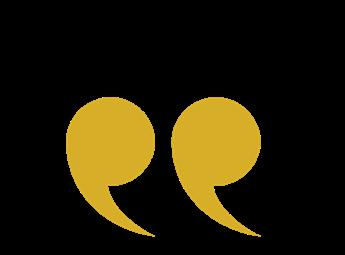
Oftentimes I meet with students who find themselves in this dire situation. My initial questions are “what happened, how did you manage to get those grades?” The questions may sound very trivial and pointless; however, these questions help us to understand what led to this situation in the first place.
to doing what is required for academic success, like improving class attendance, combined with paying attention, participating in class, completing work on time, submitting assignments, studying, and good old hard work.
In addition to that, I believe students need to accept within themselves that failure in one term or year is not the end of the road and that they can turn things around. It is completely up to them and they must want to do better. They must believe and know within themselves that they can do it if they try, put in the effort, get the support that they need, and work hard enough going forward.
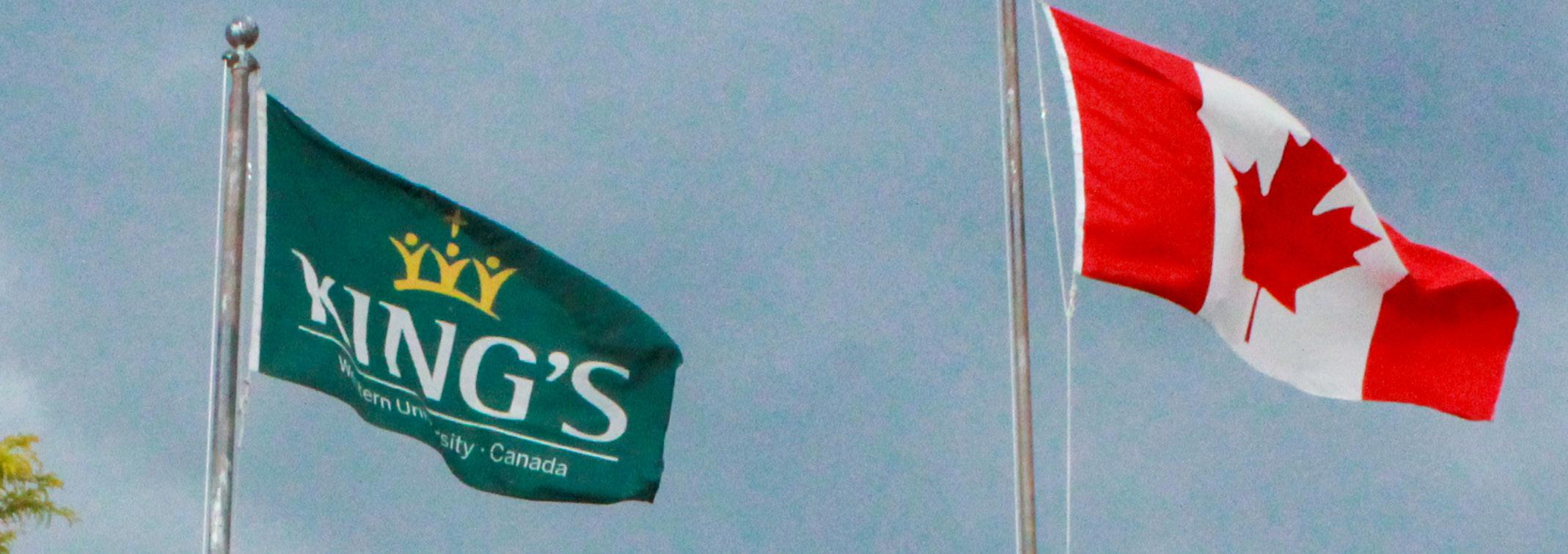
"... belief in one’s ability is crucial ...”
At this stage, belief in one’s ability is crucial. It starts with having the right mindset. This is a winning mindset and a willingness to break free from habits that impede academic progress. Without this, nothing changes and the situation repeats itself.
"MULTILINGUAL STUDENTS": WHAT TO CALL NON-NATIVE ENGLISH SPEAKING STUDENTS IN CANADA
By Chuting Zhang, Fourth-year student with
an honours specialization in Finance
My next questions are “how can you turn things around, how can this term be better than last term? What concrete steps will you take to raise your grades and fulfill your academic potential?”
Once those questions are contemplated and answered, it is time to shift into damage control mode. This scenario is experienced by many students of all levels and – good news! – 99.9% of the time the situations can be fixed. Students must be committed
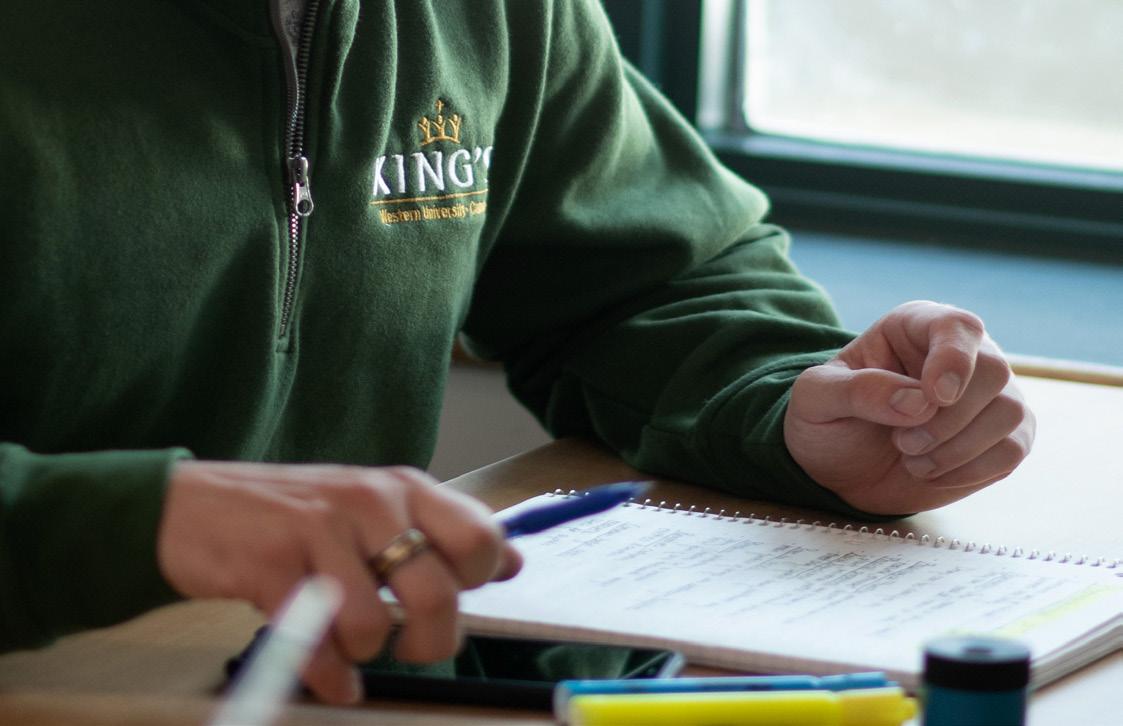
From my desk, I choose to see each student in this situation as capable and that they have what it takes. Time and again, I have witnessed students who make it to the finish line (graduation) with a diploma in hand. Simply because they refused to quit, refused to give up, and dared to do what was required to succeed academically.
To all MEM students, know that I believe in your potential. I'm here to support you every step of the way, but ultimately, success depends on your commitment and determination to succeed. If you're ready to take on the challenge, I'm here to help you reach the finish line.

With the development of internationalization, immigration, and globalization, many international students who do not speak English in their native countries are coming to study in high schools or universities in Canada. Some terms that can describe these international students are appearing, such as “ELLs” (English Language Learners), “ESLs” (English as a Second Language students), and “international” and “multilingual” students. Although the labels are not as problematic as the ones in the US, where international students are labelled as “LEPs” (limited English proficient), some people still consider some of the terms, such as “ELL” and “ESL students,” as negative since they seem to be less respectful to those speakers who are from other countries.
Some of these labels sound like the learners are still not skillful enough to talk in English. Other people consider calling them “international students” better, but that might not be a good idea either, as this term
might imply that they are not native and do not belong to Canada. Personally speaking, I think that calling these non-native learners “multilingual students” might be better, based on the potential confidence gain of non-native speakers, and the respectfulness of both international and native speakers, combined with the improvement of internationalization in Canada.
Calling international learners “multilingual students” can help build their confidence.
As Dr. Srividya Natarajan, Assistant Professor and Writing Program Coordinator in King’s Department of Writing noted in her 2019 essay, “multilingual” emphasizes that these international students possess lots of knowledge and are skillful in their native languages and cultures. Therefore, if educators label international students as “multilingual students,” these students would possibly think that they have acquired more knowledge about languages than local speakers. This would lead to students developing more confidence in learning English rather than feeling negative towards studying English or even losing confidence. In this way, international students would be more likely to study better in English if they are labelled as “multilingual students.” Labelling non-native speakers as “multilingual” would help them gain
v
29 • MEM INSIDER • June 2024
confidence and also do well in their English studies.
In addition, calling them “multilingual speakers” can also make them feel respected by native English speakers, and make them feel that they are more welcome in Canada. Since English is considered a world language, some native English speakers feel pride that they have spoken English since childhood and discriminate against people who do not speak English, according to Chris Bacon in his 2017 article. Labelling non-native speakers as “multilingual” might remind those local people to be respectful to non-native speakers. At the same time, when non-native speakers start to feel that they are respected and welcomed in Canada, they might be willing to make more effort in studying English and might also respect and make friends with local people. Therefore, calling students from other countries “multilingual speakers” is a win-win situation for both local and international students, since they both could gain respect from each other.
The results of their study indicate that using multilingual abilities in science classrooms improves the students’ ability to comprehend the science content and relate it to previous experiences. They also noted that this benefits both local students and international students who gain diverse cultural and linguistic resources in classes. This information implies that considering non-native speakers as multilingual students is beneficial to internationalization and cultural diversity in Canada.

"Calling international learners 'multilingual students' can help build their confidence."
Moreover, calling international students “multilingual speakers” can also help Canada improve internationalization, which is a process of incorporating cultures. Since writing styles, such as academic writing or science writing, can be culturally diverse, including the writing abilities of multilingual students might help educators to learn more about writing processes from lots of other countries. This could enrich English academic writing styles in Canada.
As well, multilingual students can help with science education. An experiment about the advantages of multilingual students in translanguaging science classrooms was conducted by Annika Karlsson et al in 2019.
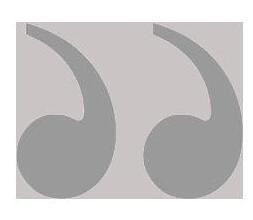
Personally speaking, I believe it is better to refer to students as “multilingual” rather than using other terms for the reasons of confidence improvement, respectfulness, and Canadian internationalization. However, people could still refer to the non-native speakers in different ways, such as “ELLs” or “ESLs,” which would probably discourage non-native speakers from learning English as well as lead to discrimination against these speakers. To solve this, both local students and local professional educators should be aware of calling them “multilingual students.” This can be done by creating announcements for students, or starting lectures that educate local students about the importance of using the term “multilingual” and about multilingual students’ abilities. Hopefully in the future, nonnative students would be more comfortable studying in Canadian academic environments, and would be more willing to learn English better in Canada as well.
INNOVATIONS IN RESEARCH WITH VULNERABLE POPULATIONS
a Research Week Panel Session by Dr. Jingjing Xu
During the week of March 25 – 28, King’s Research Week unfolded as an immersive celebration spotlighting the crucial role of research within our institution. Among the dynamic events featured during the week was the School of MEM’s engaging research panel session held on the morning of March 26. This vibrant gathering was centred on the theme of innovations in research with vulnerable populations.
Four MEM faculty members – Dr. Jeannette Eberhard, Dr. Jingjing Xu, Dr. Felipe Rodrigues, and Dr. Renfang Tian – graced the stage to present their papers. They delved into topics ranging from the policing of street-level sex work to the economic
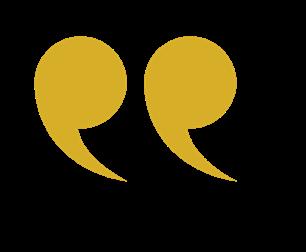
“These young researchers [are] poised to make meaningful contributions to their fields of interest”
burden faced by families with children with autism, the prediction of health outcomes in intensive care units, and the use of image recognition-assisted niacin skin flush screening in early psychosis identification and prediction. Each presentation provided valuable insights into addressing the unique challenges faced by various vulnerable populations, offering practical solutions, and sparking thought-provoking discussions among attendees.
Amidst the scholarly dialogue, four students from the senior thesis course ECON 4405 and the research method course ECON 3313, Ryan Martin, Chuting Zhang, Jingru Dong, and Zezhong Yao, proudly showcased their research through compelling posters. Their research covered a broad spectrum of issues, including the development of energy-efficient sustainable housing models, the
impact of COVID-19 on the animation industry in Japan, Canada’s gender pay gap, and the contract year phenomenon in the National Hockey League. As visitors meandered through the poster session, engaging with the students, and learning about their projects, it became evident that these young researchers were poised to make meaningful contributions to their fields of interest.
Together, faculty presentations and student posters created an environment of multifaceted academic inquiry and innovation, which exemplifies the commitment of the School of MEM community to advancing knowledge and addressing pressing societal challenges.

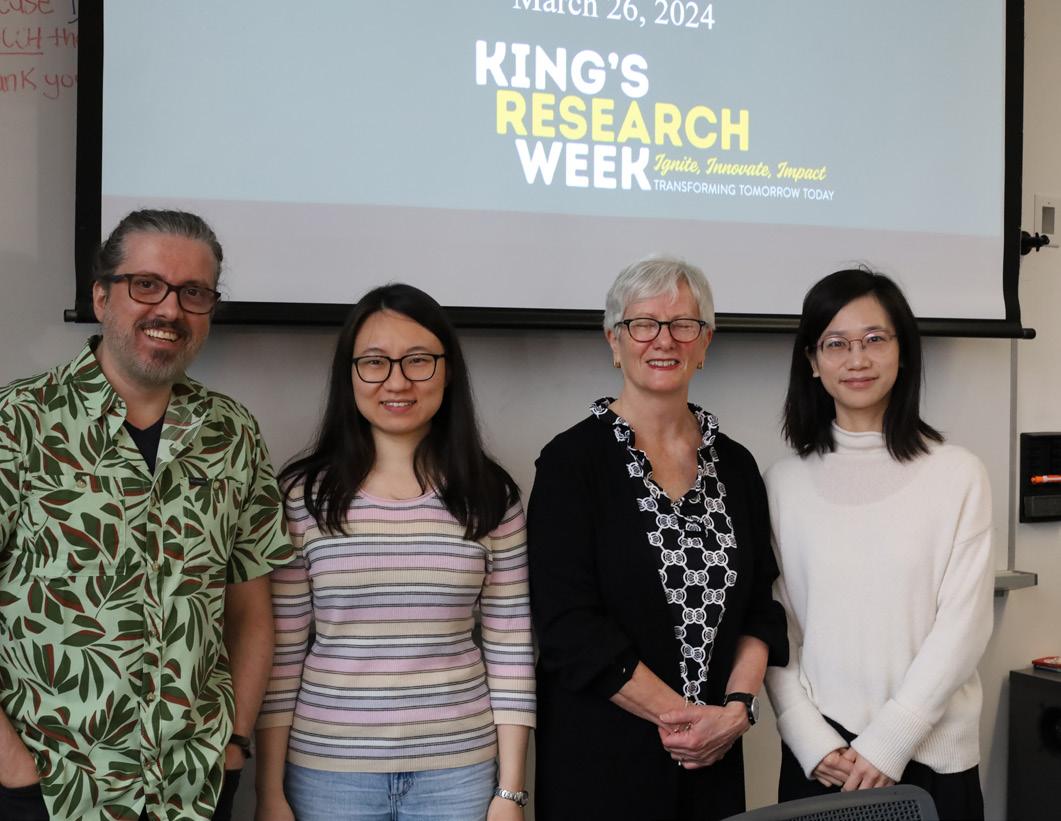
BRIDGING CULTURES AND BUSINESS
PERSPECTIVES: MY CCC PROGRAM EXPERIENCE IN JAPAN
Junbo Huang, Fourth-year student with a specialization in Economics
My journey with the Cross-Cultural College [CCC] program was not just an intercultural exchange; it profoundly solidified my future path. The program is composed of a two-month online project and a ten-day business exploration at Kwansei Gakuin University in Japan. The ingenious design of the online course had us select a company from a list and complete designated tasks. I chose a project by the Canadian Chamber of Commerce in Japan to develop a new digital platform.
Our first online meeting introduced me to my diverse team – three students from Kwansei Gakuin University and three from various Canadian institutions, including a fellow student from King’s University College, which provided a sense of belonging amid the diversity. The online course wasn't just about business market research; it challenged us to apply these concepts within a Japanese cultural context, a daunting yet enlightening task. After submitting several individual assignments for the project, it was time to head
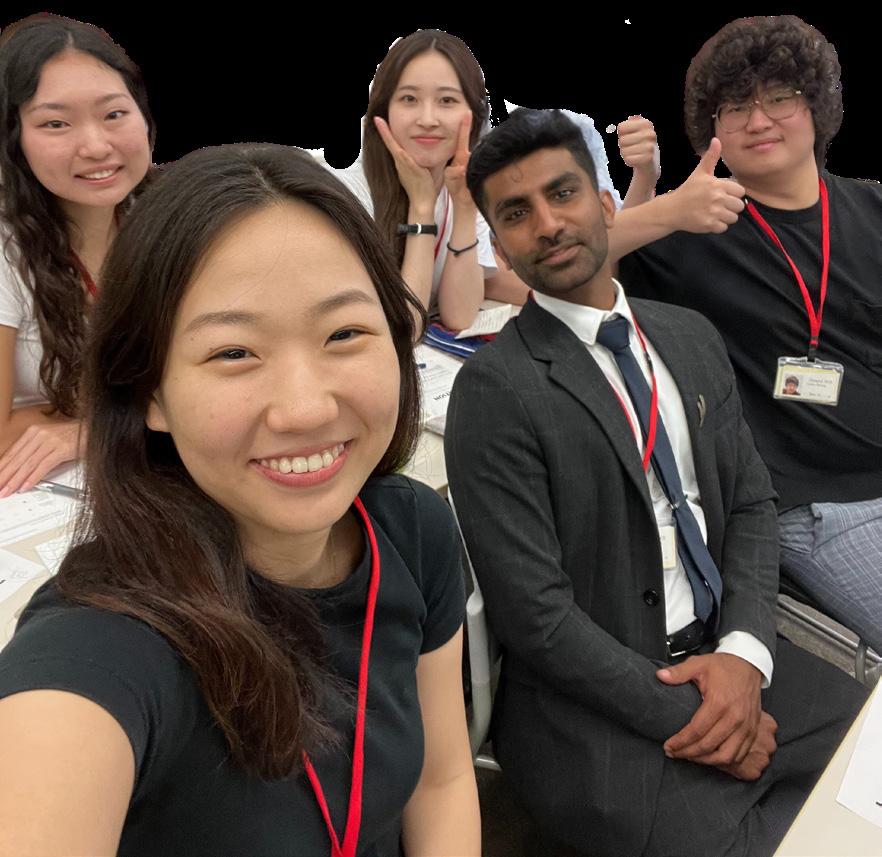
to Japan. King's meticulously prepared us with detailed travel instructions, ensuring a smooth arrival – a contrast to a fellow King's student who, unaware of these instructions, ended up at a namesake hotel in a neighbouring city late at night. Fortunately, we reconnected and guided him

“In Japan, I quickly learned how different cultures express ideas distinctly.”
to the right place for our early morning meet-up.
In Japan, I quickly learned how different cultures express ideas distinctly. For instance, Canadian students often approached new ideas with enthusiasm, focusing on implementation, while Japanese students keenly identified areas for improvement. The task was to amalgamate our individual business plans into a viable proposal. Our group chose my plan – a modern website
design for the Canadian Chamber of Commerce in Japan, targeting young entrepreneurs and featuring AI-driven functionalities and a community-building platform. However, a meeting with the Chamber’s representatives on the second day brought a reality check. Our design was too complex for their limited human resources. We promptly revised our plan, simplifying features and integrating more automated systems. While we didn’t win the top project award, the feedback was overwhelmingly positive, praising our work as a realistic business endeavour rather than just a project submission.
Beyond the learning, I was amazed by Japan's emphasis on socializing in the workplace, a culture even reflected in university students. Every evening, Japanese students from our program would invite us to dine at local izakayas [Japanesestyle pubs] or chat over food and drinks in our hostel’s attic. This fostered friendships that felt years deep, despite the brevity of the program.
Reflecting on this experience, I can confidently say it was one of the most enriching periods of my life. It was not just about acquiring knowledge or practical business insights, but immersing myself in a new culture and forming lasting friendships. The CCC program has undeniably shaped my view towards business development, emphasizing the significance of cultural understanding in today's globalized world.
For more information about CrossCultural College, visit kings.uwo.ca/ccc/.
The summer before I started King’s, I remember being so excited about the possibility of participating in an exchange program with the university. There were quite a few options at the time for BMOS students to travel to Brazil, South Korea, the United Kingdom, and more. The idea of studying with the bonus of travelling was so appealing to me. Unfortunately, halfway through my first year, a little something called COVID-19 took over and essentially brought the world to a stop. Not knowing how long this would last, I began looking at other options to continue my learning that would allow me to experience new things and be outside a traditional classroom. This is when I learned that King’s has an internship program for BMOS students. From then on out, my goal was to join the program and enrich my studies by gaining hands-on experience in the workplace.
MY INTERNSHIP EXPERIENCE
Jessica
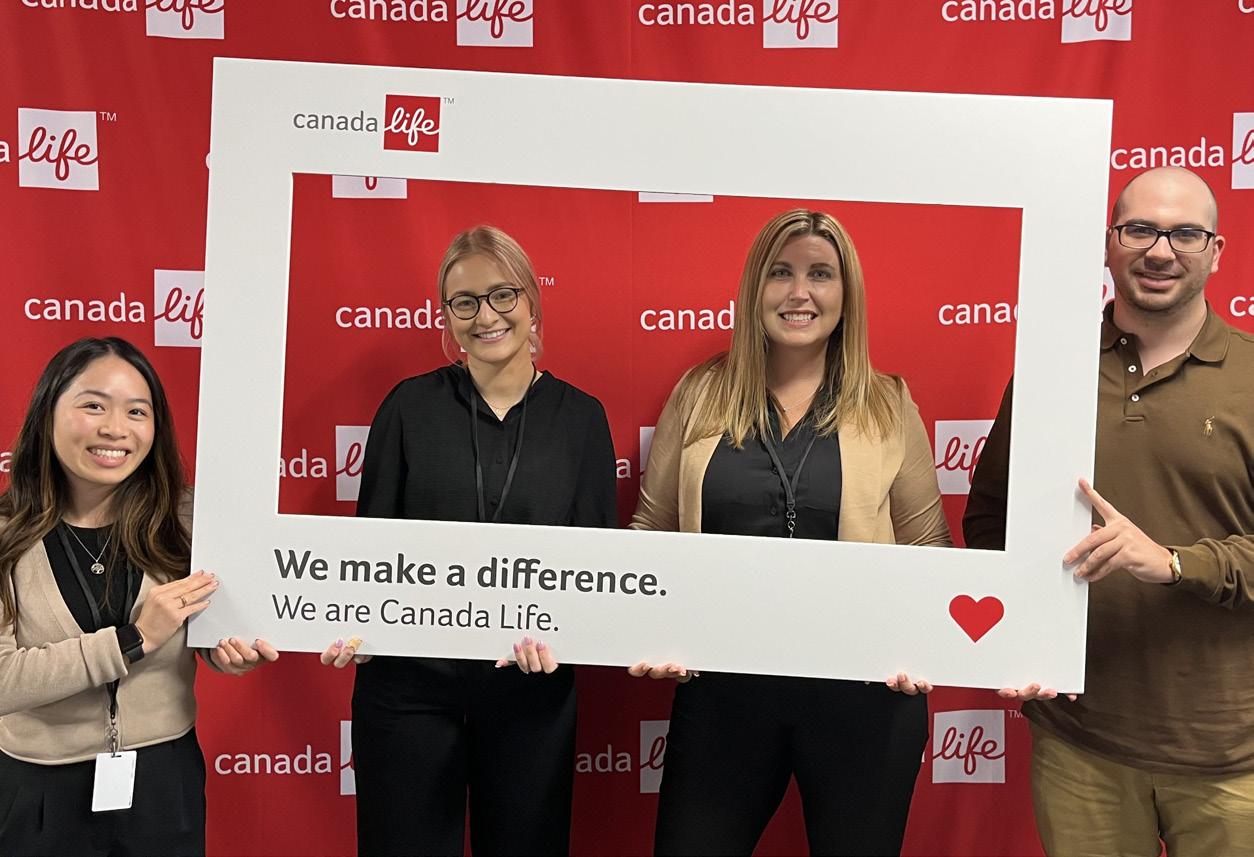
My job search was not the easiest, especially as a student with limited experience. This, however, did not deter me from applying to any and every job that I found interesting, and thought would be a great experience. I applied to numerous jobs, some that never even bothered to reject me, some that rejected me months later, some I received interviews for, and finally, one I received an offer for.
The offer was from Canada Life. The large and bright building right in downtown London, across from Victoria Park, was going to be my new work home for the next eight months. I was a part of the Human Resources department, specifically working as a compensation analyst. Upon starting, I learned
so much about the inner workings of human resources in a company as large as Canada Life. In this role, I was responsible for supporting and/or conducting evaluations of jobs, conducting marketing analyses, administering both salary and bonus policies, as well as ensuring compensation at Canada Life was aligned with internal and external markets.
During my internship term, I worked on various projects as well as completed general day-today and ad hoc tasks. These projects and tasks included managing a shared compensation inbox and responding to inquiries in a professional and timely manner, and conducting job evaluations using a template that aids in the levelling of jobs, which determines the salary range for each job. Another project that I was responsible for was the completion of surveys. These surveys were conducted by other financial institutions such as TD or compensation specialist firms like Mercer, which gather data from other financial institutions such as banks or insurance companies. The surveys needed to be completed with accurate and updated information because the results are crucial for market analysis purposes, as well as the determination of salary increases for the company and its employees. To complete the surveys, I used data stored in large Excel files and created pivot tables, utilized VLOOKUPS, conditional formatting, and various calculations to find different values to input as my responses for the surveys.
Completing the MOS Internship Program was one of the best decisions I have made. In only eight months, I expanded my knowledge on human resources, developed an appreciation for the work of compensation and I am currently pursuing compensation as my career. I have built professional connections who I keep in touch with to this day.
33 • MEM INSIDER • June 2024
Minh Nguyen, Fourth-year student in MOS with an honours double major in Global Commerce, and Finance and Administration
33 • MEM INSIDER • June 2024

Insights from a BMOS Finance and Management Student
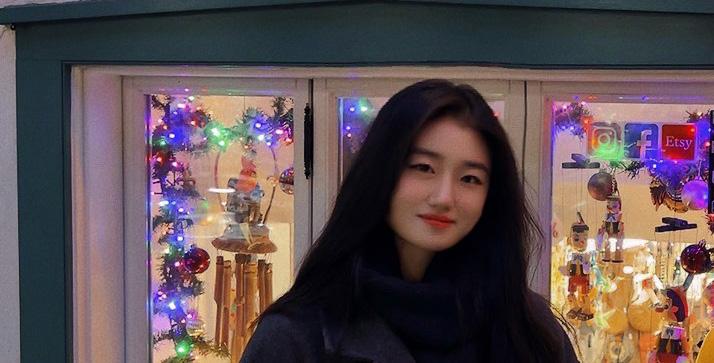
In the pursuit of a bright future, each student experiences challenges and difficulties. However, someone can stand out in the midst of adversities with their indomitable willpower and outstanding ability. Ruoyan Zhan is a student who, after having been admitted to Boston University, successfully embarked on the path to graduate school. Let’s hear her story.
Ruoyan developed a strong interest in business during her high school days. Influenced by her parents, she was determined to study finance and administration as her undergraduate direction of research. Even though there are many potential challenges in this field, she still followed her aim without hesitation.
serendipity brought her to the professor who would become her favorite. Dr. Jennifer Jeffrey, shared many suggestions about how to choose a school and plan for a future career, and in the process they built up a friendship. Ruoyan believes that the recommendation letter from Dr. Jeffrey largely empowered her master’s degree admission and showed her outstanding academic performance to other universities.

“You should definitely squeeze in time to experience more, given that
During her last two years of study at King’s, Ruoyan set specific objectives that would lead to earning a graduate degree after getting a bachelor’s degree. Applying for graduate school is a difficult task that requires comprehensive consideration of all the relevant factors. Ruoyan realized that a brilliant academic record, rich internship experience and solid skills were the keys to a successful application. She especially notes the importance of high grades because her academic performance during the pandemic hindered her opportunity to apply to some schools.
Based on her experience, Ruoyan has this advice: “You should definitely squeeze in time to experience more, given that graduate schools attach importance to internship and volunteer experiences.” She adds, “People will be at a loss when they are lacking in practical experience, which is why schools tend to admit experienced students.” She notes that distinctive skills can be highlighted in your application so that yours stands out from the thousands of others and, of course, basic skills such as Microsoft are indispensable. Needless to say, she is perfectly up to speed in these aspects, thanks to her tireless efforts.
graduate schools attach importance to internship and volunteer experiences.”
the interviewer's questions. Third, she demonstrated her strengths and interest in marketing to the interviewer to show her enthusiasm. Ruoyan noted that she tended to choose schools that provided internships or co-op programs.
Besides her focus on academics, Ruoyan carves out time for enjoying life. She’s keen on travelling, reading and photography. She has also made many friends in London, and often gathers with them for a barbecue and to chat to relieve the pressure of studying. London is famous for its natural environment and there is a forest near her apartment where there are many small animals, and occasionally she can see deer, a sight that makes her feel attached to this place.

During her undergraduate study at King’s, she was not just satisfied with acquiring theoretical knowledge in class, but also participated in a range of internships and projects, all of which supported her graduate school application. In addition, BMOS provided a variety of courses outside Ruoyan’s professional curriculum, so she fully took advantage of the flexibility of her specialization to explore other areas and found an interest in marketing. There,
However, while exploring academic directions, difficulties and challenges are inevitable. Ruoyan’s greatest obstacle was the online courses during the pandemic. As a consequence of the 12-hour time difference between China and North America, she struggled with a circadian cycle reversal and the corresponding mental adjustment. Fortunately, she overcame that obstacle with her optimistic attitude and tenacious perseverance, and kept moving forward after returning to the King’s campus from overseas.
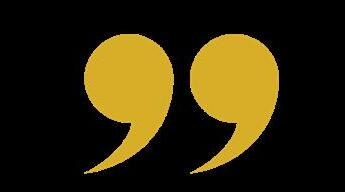
She says that in addition to these critical factors, her video interview played an important role in her successful graduate school admission. She considered marketing as a future research direction and applied to schools that had high QS World University Rankings. Before a video call with an interviewer, her first step was to look through the website of the university to examine their curriculum and the requirements and curriculum provisions, to see how she matched up. Second, she reviewed her resume and personal background, and tried to predict
Ruoyan has some additional suggestions for upcoming students. To begin with, those who are interested in applying to graduate school ought to prepare well before sitting the GMAT or GREs. Secondly, she says that in class, it’s essential to speak up more and ask more questions, so that professors remember you – your professors have work experience, and can share some ideas. Third, make use of alumni resources and get information through LinkedIn or professor recommendations. She feels that most alumni are kind, and you can arrange a chat over coffee with them.
In conclusion, Ruoyan's story tells us that success is not accidental, but requires hard work and perspiration. Through her experience, we have come to see her enterprising spirit and determination to pursue excellence. Her experience has not only earned her success but also has set an example for others around her. On the way to pursue our own dreams, let's extend our best wishes to this brave graduate!
Boya Yang,
Chongqing Technology and Business University (CTBU) third-year student in MOS with an honours double major in Accounting and Finance
35 • MEM INSIDER • June 2024 34 • MEM INSIDER • June 2024

SCHOOL OF MEM SPOTLIGHT ON GRADUATE STUDIES

Many of our students choose to continue their studies at the po stgraduate level. This year, more than 35% of MEM graduates have been accepted to post graduate programs around the world; some students shared with us their success st ories here.
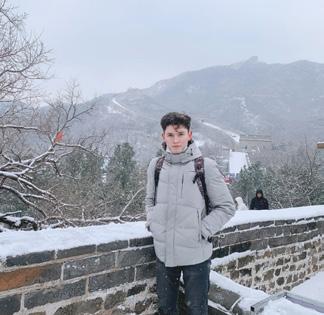
Aotikuer Ainiwaer (’24 honours double major in English Literature and Finance) has been accepted to the Master of Public Health programs at McGill and at Queens.
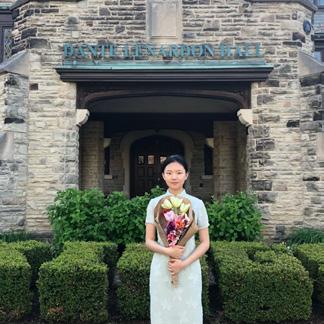
Jingru Dong (’24 honours specialization in Economics) has been accepted for graduate study at Johns Hopkins University.

Jiayi Luo (’24 Specialization in Economics) has been accepted to the Master of Science in Enterprise Risk Management program at Boston University.
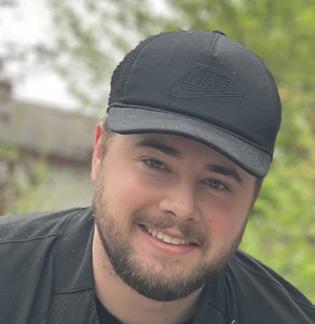
Ryan Martin (’24 honours specialization in Economics) has been accepted to the Master of Financial Economics program at Western.

Amanda Nguyen (’24 honours specialization in Global Commerce) has been accepted to the MSc in Business Analytics program at Ivey and the Master of Management Analytics (MMA) program at Rotman.
Junfan Gong (’24 honours double major in Finance and Global Commerce) has been accepted to the Master of Commerce program at University of Sydney.
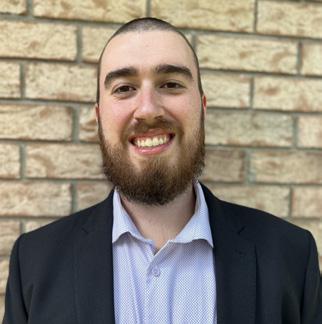
Parker Hrudka (’24 major in Finance, minor in ADS) has been accepted to the MSc in Business Analytics program at Ivey.
Nathan Dunmore (’22 honours specialization in Finance and Administration) has been accepted to the Faculty of Education at Western.
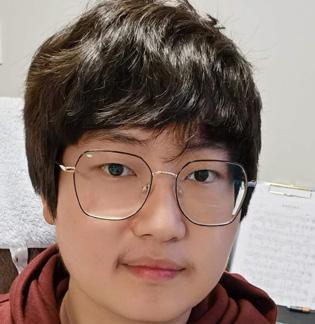
Junbo Huang (’24 Specialization in Economics) has been accepted to the Master of Finance program at Columbia University.
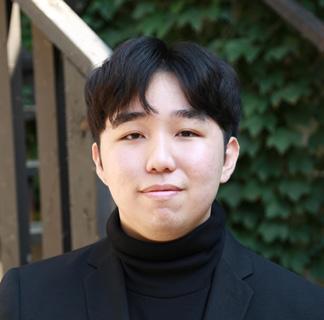
Andre Nguyen (’24 honours specialization in Finance and Administration) has been accepted to the MSc in Business Analytics program at Ivey.
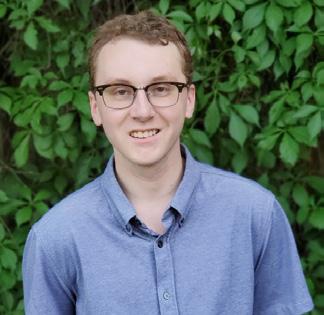
Jackson Pfaff (’24 specialization in Financial Economics, minor in ADS) has been accepted to the Master of Financial Economics program at Western.
Ziyao Xu, (’24 honours double major in Finance and Global Commerce) has been accepted to the Master of Commerce program at the University of Sydney.
Meihua Li, (’24 honours double major in Finance and Global Commerce) has been accepted for graduate study at King’s College London.

Yiran Li (’24 specialization in Financial Economics) has been accepted for graduate study at the University of Toronto
To all of our MEM graduates headed to master’s programs, doctoral programs, teachers college, and other academic and/or professional postgraduate programs, we wish you the best!!
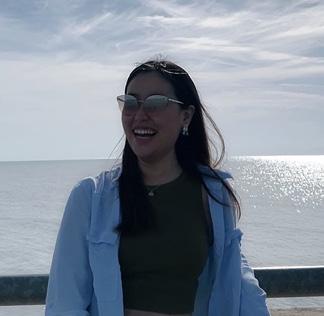
Jenny Liu (’24 honours specialization in Organizational and Human Resources, minor in Psychology, minor in ADS) has been accepted to the MSc in Business Analytics program at Ivey.

Mingrui Sun (’24 honours double major in Finance and Economics) has been accepted to the Master of Public Administration program at the University of Pennsylvania.

Spencer Love (’24 honours double major in Finance and Economics) has been accepted to the Master of Financial Economics program at Western.

Sahar Pournabi (’24 honours double major in English Literature and Organizational and Human Resources) has been accepted to the Master of Teaching program at the University of Toronto Ontario Institute for Studies in Education (OISE).
Qinying Yang (’24 honours double major in Finance and Global Commerce) has been accepted to the Master of Commerce program at the University of Sydney.
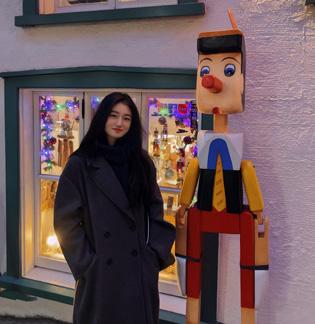
Ruoyan Zhao (‘24 specialization in Finance and Administration) has been accepted to the Commerce in Marketing program at University of New South Wales, the Marketing Analytics program at University of Rochester, and the Global Marketing Management program at Boston University.
Chuting Zhang (’24 honours specialization in Economics) has been accepted to the MSc in Business Analytics program at Ivey.
FORWARD TO THE
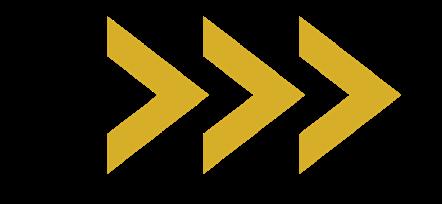
FUTURE
36 • MEM INSIDER • June 2024
REMEMBERING OMAR BARZAK, KING’S ALUMNUS (BMOS ’21)

I’m honoured to write about my good friend Omar Barzak, a 2021 graduate from King’s University College, who passed away suddenly and tragically this April in a motor vehicle collision. Omar will be remembered as someone who consistently gave back to the community, and was deeply cherished by those around him. Omar was a genuine leader and brother who dedicated himself to helping those in need through various volunteer and cultural initiatives. He taught us a lot, and although Omar left us early, his smile and positivity will always remain with us.
Getting involved in charitable activities and giving back to the community were incredibly important to Omar, and he held various roles in nonprofit and cultural groups throughout his career. These included serving as the VP Events at the Arab Student’s Association at Western University, Director of Marketing and Community at One World United, co-founder at Lammetna, volunteer at Human Appeal and more. He was also a member of the London-based Al-Asala Dabke Group, a dance troupe with more than 1.3 million followers on TikTok and nearly 300,00 followers on Instagram.
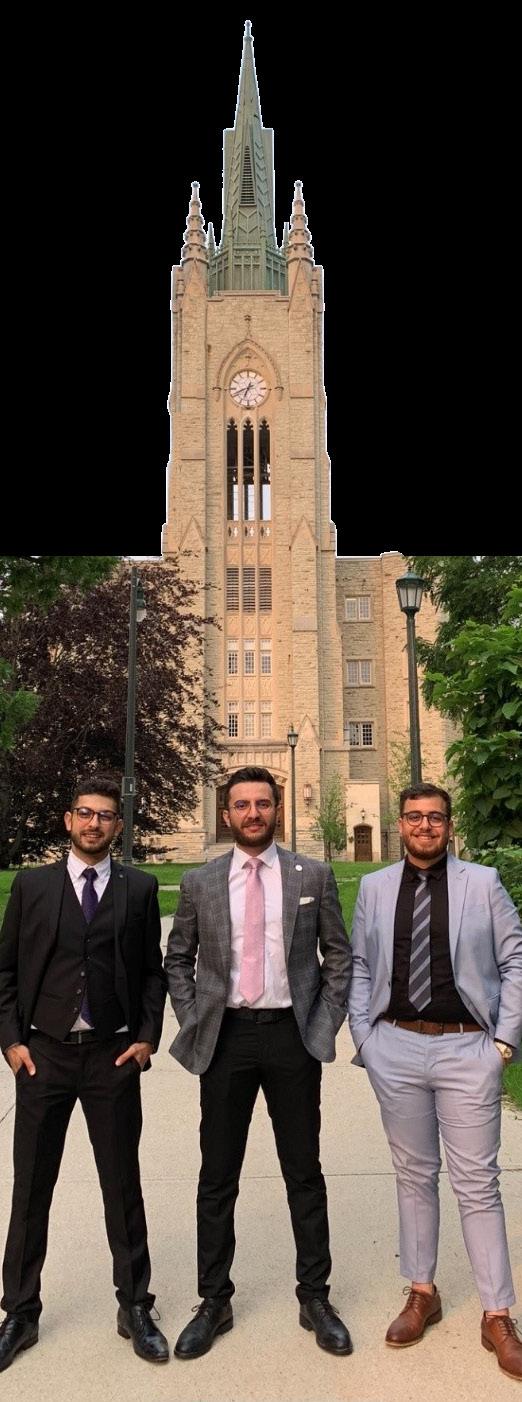
The sudden passing of the 24-year-old has left his loved ones and the London community devastated. Dr. Munir El-Kassem, the imam of the Islamic Centre of Southwest Ontario (ICSO), remarked that the gathering and procession for Omar were the largest ever witnessed at the cemetery. Omar also touched the hearts of those acquainted with him through his charitable activities and online presence. In response to Omar’s passing, a charity he was involved with initiated an online fundraiser on LaunchGood, which has garnered over $170,000 in just a few days. The funds raised will be allocated to various Sadaqah Jariyah projects in Omar’s memory, including the construction of a water well in East Africa. Sadaqah Jariyah, as described on Human Appeal's website, is a benevolent form of charity that continues to benefit the giver even after their demise.
Omar's caring nature and willingness to help others will be cherished in our hearts always. We will strive to carry on his legacy by practicing kindness and lending a helping hand whenever we can. Through his passing, we've learned the importance of cherishing every moment and showing love to those around us. Rest peacefully, Omar, your spirit lives on in the lessons you've taught us.
38 • MEM INSIDER • June 2024
Ahmed Al Fares, BMOS ’21
38 • MEM INSIDER • June 2024


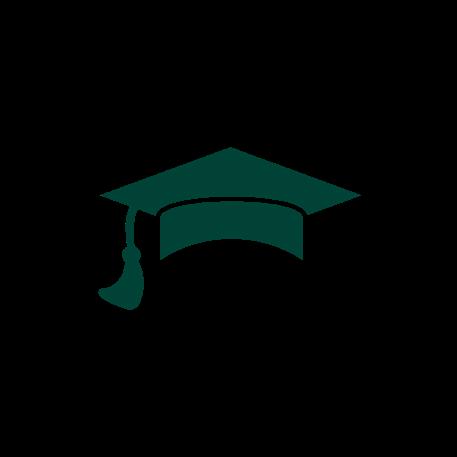
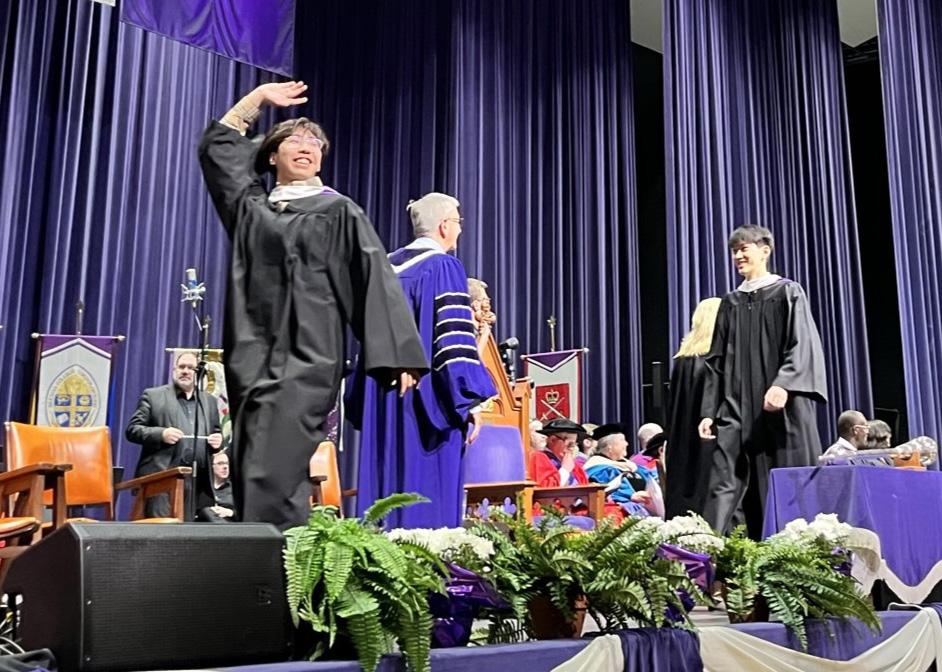
WAVING goodbye Congratulations, graduates
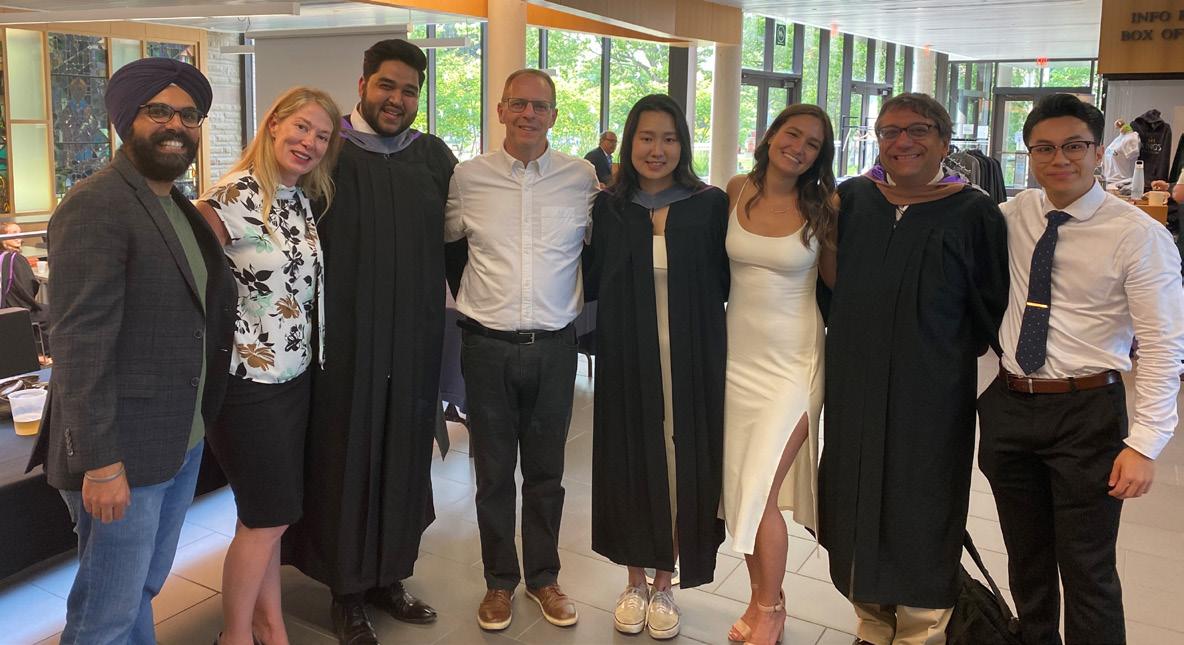
"To the graduating class of 2024, We wish you all the best as you embark on the next chapter. Whatever it is, you're certainly ready for it!" We hope to see you at Homecoming!
Jen Jeffrey, MBA, PhD Director, School of MEM
If you have any career or personal announcements, please contact us at MEMinsider@kings.uwo.ca.
BMOS Association
Facebook: BMOS Association at King’s
Email: kings.bmos@kucsc.com
King's Accounting Club (KAC)
Facebook: King's Accounting Club
Email: kac@kucsc.com
King's EconoMath Society (KEMS)
Instagram: KEMSclub
Facebook: King’s EconoMath Society
Email: kems@kucsc.com
King's Investment Club (KIC)
Facebook: King’s Investment Club
Email: kic@kucsc.com
Credits
Project management: Estelle Van Winckle, School of MEM
Layout and design: Laura Le Faive and Morgan DeCampos, King's Communications
Photography: MEM students, King's Communications, and Steve Grimes,
Editor: Laurie Bursch, King's Communications
Make sure to follow @KUCAlumni on Facebook, Instagram and Twitter for all the latest and greatest Homecoming news!
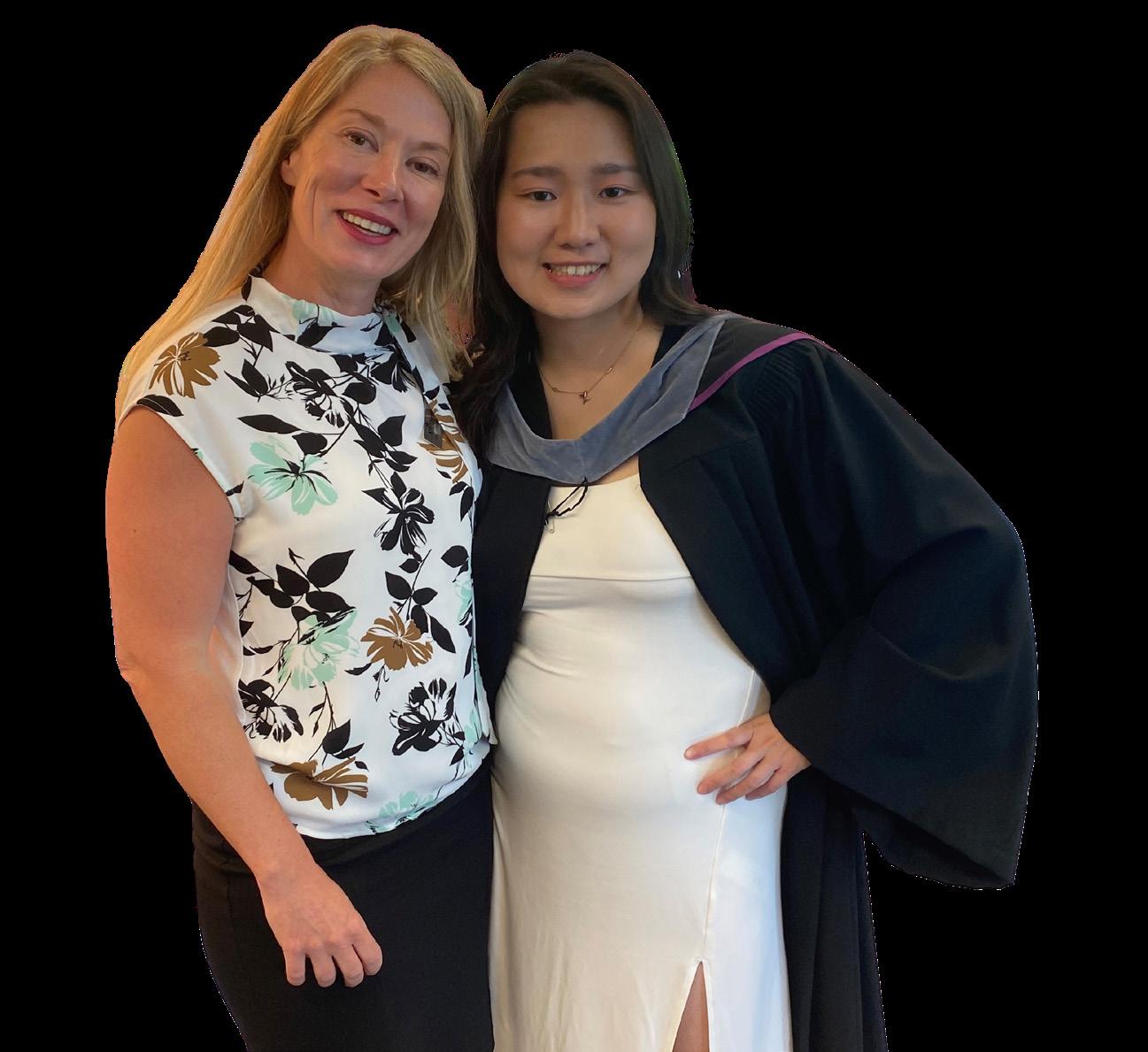
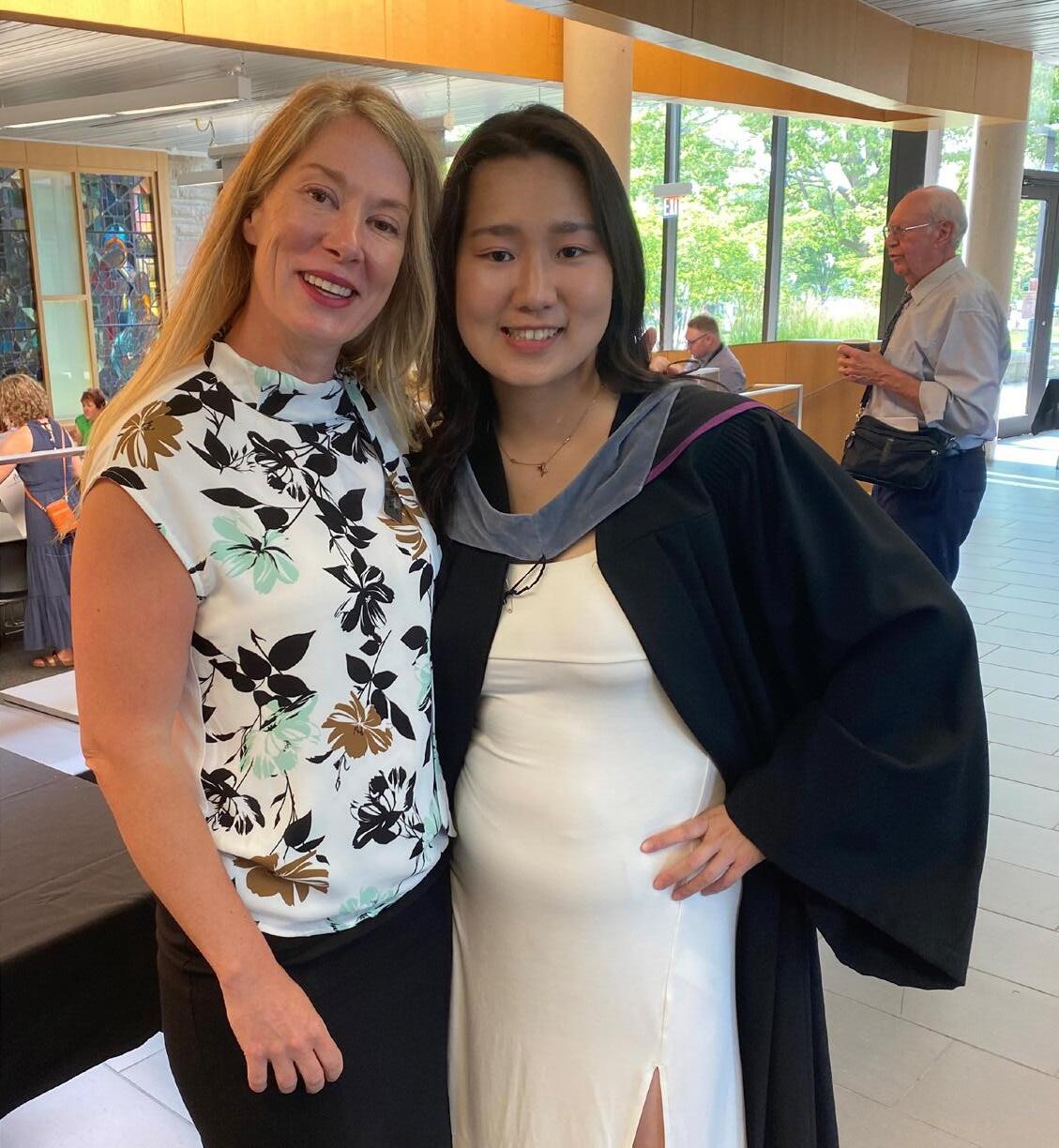

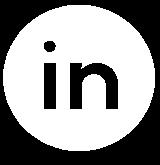





@kingsatwestern kingsatuwo kings.uwo.ca • 1-800-265-4406 • info@kings.uwo.ca 266 Epworth Ave. London, Ontario N6A 2M3 Canada









 Jennifer Jeffrey, PhD
Associate Professor and Director of the School of MEM
Jennifer Jeffrey, PhD
Associate Professor and Director of the School of MEM






































 By Shuai "Paul" Chen, Fourth-year student in MOS specializing in Finance and Administration
By Shuai "Paul" Chen, Fourth-year student in MOS specializing in Finance and Administration






 Zhixin “Nora” Wu, fourth-year student majoring in Psychology
Zhixin “Nora” Wu, fourth-year student majoring in Psychology



























































